freethought-activists
John E. Remsburg
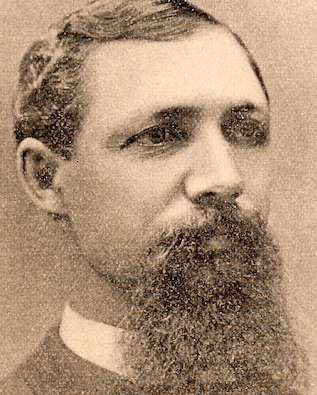
On this day in 1848, John Eleazer Remsburg was born in Fremont, Ohio. He enlisted in the Union Army at age 16 and in 1870 married Nora Eller of Atchison, Kansas. He was a teacher for 15 years and superintendent of public instruction in Kansas for four years before becoming a freethought lecturer and writer.
His many books include Life of Thomas Paine (1880), False Claims (1883), Bible Morals (1884) and Abraham Lincoln: Was He a Christian? (1893). In his 1909 book The Christ, Remsburg listed 42 writers who did not mention Jesus or whose mentions were suspect. He wrote that the man Jesus may have existed, but that the Christ of the gospels was mythical.
He was a life member of the American Secular Union, of which he was president from 1897–1900, and a member of the Kansas State Horticultural Society. (D. 1919)
"The name of Christ has caused more persecutions, wars, and miseries than any other name has caused. The darkest wrongs are still inspired by it."
— Remsburg, from "The Christ: A Critical Review and Analysis of the Evidences of His Existence" (1909)
G.W. Foote
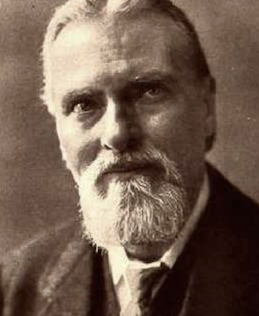
On this date in 1850, atheist activist George William Foote was born in England. In 1876 he began co-editing a weekly newspaper, The Secularist, with Jacob Holyoake, then became the first editor of the National Secular Society’s publication The Freethinker. Foote edited The Freethinker for 35 years. The magazine is still published but moved to online-only in 2014.
Foote was prosecuted for blasphemy in 1882 and jailed for a year. His plight brought reform, making future criticism of Christianity lawful in Great Britain. Foote launched several other freethought journals, publishing companies and presses, devoting his life and career to the advancement of secularism. His books include Flowers of Freethought and, with W.P. Ball, The Bible Handbook. (D. 1915)
"Who burnt heretics? Who roasted or drowned millions of ‘witches’? Who built dungeons and filled them? Who brought forth cries of agony from honest men and women that rang to the tingling stars? Who burnt Bruno? Who spat filth over the graves of Paine and Voltaire? The answer is one word — Christians."
— Foote from "Are Atheists Wicked?" (a chapter in "Flowers of Freethought," 1894)
Ruth Hurmence Green
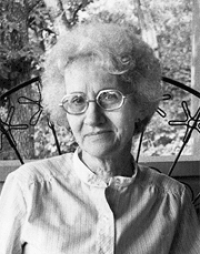
On this date in 1915, Ruth Hurmence Green was born. The Iowa native received a journalism degree from Texas Tech in 1935, married, had three children and settled in Missouri. Green, a “half-hearted Methodist,” first plodded through the bible when convalescing from cancer in her early 60s, calling the shock she suffered from reading the book worse than the trauma caused by her illness. “There wasn’t a page of the bible that didn’t offend me in some way. There is no other book between whose covers life is so cheap,” she said, prompting her to write the enduring modern freethought classic The Born Again Skeptic’s Guide to the Bible (1979).
In the book’s preface, Green wrote: “I am now convinced that children should not be subjected to the frightfulness of the Christian religion. … If the concept of a father who plots to have his own son put to death is presented to children as beautiful and as worthy of society’s admiration, what types of human behavior can be presented to them as reprehensible?” When terminal cancer developed in 1981, Green, who always insisted “There are atheists in foxholes,” took her own life, swallowing painkillers in 1981.
In her last letter to Anne Gaylor of the Freedom From Religion Foundation on July 4, 1981, she wrote, “Freedom depends upon freethinkers.” (D. 1981)
"There was a time when religion ruled the world. It is known as the Dark Ages."
— Ruth Hurmence Green, 1980
Ernestine L. Rose
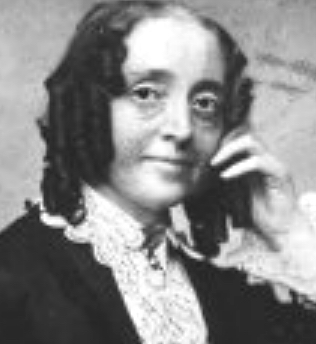
On this date in 1810, Ernestine Louise Rose, née Potowski, was born in a Jewish ghetto in Poland. As the only child of an Orthodox rabbi, she was “a rebel by the age of five.” The dedicated activist became 19th-century America’s most outspoken atheist and its first lobbyist for women’s rights. Rose championed the Married Women’s Property Act first introduced by freethinking Judge Thomas Hertell in the New York Legislature in 1836, which became a model law when enacted in 1848.
After moving from Poland to England in 1830, she married William Ella Rose, a jeweler and fellow Owenite. They moved to New York in 1836 and became U.S. citizens. Rose had the distinction of being barred as an atheist from the U.S. Capitol by its chaplain in 1854. Responding to one religious heckler who turned off the gas lights during her lecture in 1853, she brought down the house by quipping that “one of the true things we find in the bible, that some there are ‘who love darkness better than light.’ ”
Known as the “Queen of the Platform,” the ringletted woman’s rights activist was frequently harassed by minister-led mobs. Her best-known freethought speech, “A Defense of Atheism,” was delivered in 1861 and is reprinted in the anthology Women Without Superstition. Rose lectured widely for women’s rights, atheism and abolition, retiring to England near the end of her life. (D. 1892)
“It is an interesting and demonstrable fact that all children are Atheists, and were religion not inculcated into their minds they would remain so.”
— Rose, "A Defense of Atheism" speech (1861)
Fred Whitehead
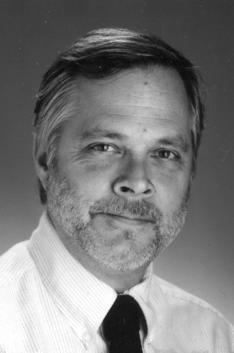
On this date in 1944, Fred Whitehead was born in Pratt, Kansas. He graduated from the University of Kansas in 1965 and earned his Ph.D. in English from Columbia University in 1972. Whitehead, an editor and freethought historian, edited the quarterly newsletter Freethought History, which describes the history of atheism and freethought. He writes articles for publications, including Free Inquiry.
With Verle Murher, Whitehead edited Free-thought on the American Frontier (1992), a collection of essays from early freethinkers of the American West. Whitehead and Murher wrote: “From the earliest days of colonization, there has been a struggle between Christianity and freethinkers on this continent.” In 1989 Whitehead was given an Award for Exceptional Service by the Kansas Writers Association. He edited Culture Wars: Opposing Viewpoints, published in 1994.
"Far from being marginalized, as is presently the case, nineteenth-century freethought was a social movement at the core of our national life."
— "Free-thought on the American Frontier," eds. Fred Whitehead and Verle Murher (1992)
Helen H. Gardener
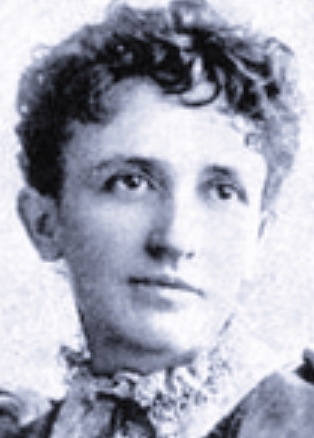
On this date in 1853, freethinker and suffragist Helen H. Gardener, née Alice Chenoweth, was born in Virginia, the youngest daughter of a Protestant minister who had inherited slaves but freed them in 1853 despite existing legal obstacles. Changing her name in her 30s, she became a writer in New York City, studied biology at Columbia and met “the Great Agnostic” Robert Green Ingersoll, who encouraged her to undertake a lecture series. The lectures were published in 1885 in book form, Men, Women and Gods.
A friend of feminist Elizabeth Cady Stanton, Gardener was a member of Stanton’s Woman’s Bible Committee. Chosen by Stanton to deliver her memorial service, Gardener quipped that while most suffragists found the Woman’s Bible too radical, she found it not radical enough! She also used fiction to crusade for women’s rights, writing novels, for example, showing the harm of the scandalously low age of consent laws of her era.
In her 1885 book Men, Women, and Gods, she wrote: “I do know that women make shirts for seventy cents a dozen in this [world]. I do know that the needs of humanity and this world are infinite, unending, constant, and immediate. They will take all our time, our strength, our love, and our thoughts; and our work here will be only then begun.”
She became vice president of the National American Woman Suffrage Association in 1917, working as chief liaison with President Woodrow Wilson’s administration, and credited with being a “worker of miracles” by sister suffragists. At age 67 she became the first woman appointed to the U.S. Civil Service Commission, serving with distinction for five years.
She died at 72 of myocarditis. She had donated her brain for scientific study before her body was cremated and its ashes interred at Arlington National Cemetery beside the grave of her second husband. Her brain is housed as part of a collection at Cornell University. (D. 1925)
PHOTO: Gardener at age 41.
"I do not know of any divine commands. I do know of most important human ones. I do not know the needs of a god or of another world.”
— Gardener, "Men, Women, and Gods, and Other Lectures" (1885)
Joseph Mazzini Wheeler
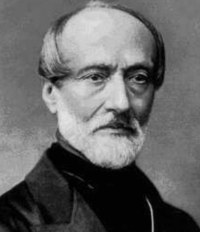
On this date in 1850, Joseph Mazzini Wheeler was born in Great Britain. Wheeler, an atheist, is best known as the author of the monumental Biographical Dictionary of Freethinkers (1889). Wheeler, who dedicated his life to freethought after moving to London in the early 1870s, was a close friend of freethought editor G.W. Foote. Wheeler also wrote Frauds and Follies of the Fathers (1888), Footsteps of the Past (1895) and co-authored Crimes of Christianity with Foote.
He served for many years as vice president of the National Secular Society and was a frequent contributor to freethought periodicals. He served as subeditor of the National Secular Society’s publication The Freethinker from its founding in 1881 to his death at age 48. (D. 1898)
"The merits and services of Christianity have been industriously extolled by its hired advocates. Every Sunday its praises are sounded from myriads of pulpits. It enjoys the prestige of an ancient establishment and the comprehensive support of the State. It has the ear of rulers and the control of education. Every generation is suborned in its favor. Those who dissent from it are losers, those who oppose it are ostracised; while in the past, for century after century, it has replied to criticism with imprisonment, and to scepticism with the dungeon and the stake."
— from "Crimes of Christianity" by J.M. Wheeler and G.W. Foote (1887)
Sherwin Wine
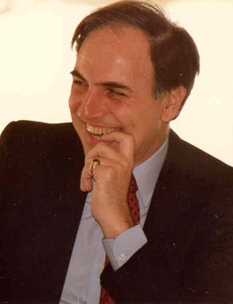
On this date in 1928, Sherwin T. Wine was born in Detroit, Mich. He received his bachelor’s degree in philosophy from the University of Michigan, and returned for his master’s degree in philosophy in 1951. Wine attended Hebrew Union College in Cincinnati and was ordained as a rabbi in 1956. He worked as a U.S. Army chaplain in Korea (1957–58) and an assistant rabbi at Temple Beth El in Detroit (1958–60). Wine wrote many books, including Judaism Beyond God (1985) and Staying Sane in a Crazy World (1995). He lived with his partner, Richard McCains, until Wine’s death in 2007 in Morocco from a car accident.
Born to Conservative Jewish parents, Wine began questioning the idea of a god at Hebrew Union College and gradually lost his faith. He told Time magazine in 1965: “I am an atheist,” adding, “I find no adequate reason to accept the existence of a supreme person.” (Quoted in The New York Times, July 25, 2007.) Wine’s lack of belief led him to consider the concept of Humanistic Judaism, which rejects belief in God while maintaining secular Jewish traditions, culture and ethics.
“Theological beliefs have nothing to do with Jewish identity. The Jewish people encompass theists and atheists,” Wine explained in his book Celebration (2003). He elaborated on the beliefs of Humanistic Judaism: “Humanists know that they have the right and the power to be the masters of their own lives, that they have the strength to confront the world as it is and not as fantasy makes it appear, and that they have the opportunity to serve the future and not the past.”
Wine established the Birmingham Temple in 1963 in Farmington Hills, a suburb of Detroit. At the temple, which he worked at until his retirement in 2003, Wine performed services with no mention of God, replacing prayers with poetry and Torah readings with speeches on history. Humanistic Judaism is now practiced worldwide. (D. 2007)
"If I were a CEO of a company and ran it like God runs the universe, I'd be fired."
— Wine interview, The Guardian (Sept. 18, 2007)
Eugene M. MacDonald
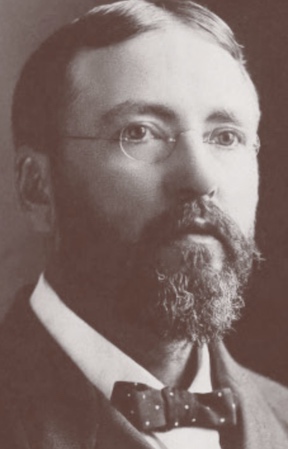
On this date in 1855, Eugene Montague MacDonald was born. The American journalist became a foreman at The Truth Seeker, a 19th-century freethought newspaper. When Truth Seeker founder D.M. Bennett died, MacDonald and two others established The Truth Seeker Company, buying the newspaper in 1883. MacDonald edited the 19th century’s leading freethought publication for 26 years. His brother George took over editorship when Eugene retired shortly before his death. Truth Seeker readers and contributors included Clarence Darrow, who wrote in 1931 that he had been connected with the publication for 50 years. (D. 1909)
PHOTO: MacDonald, c. 1883.
"The Chicago World’s Fair having been decreed, the kind of church people who adopt meddling as a means of grace saw that now was their day of salvation. Hitherto, with their fussy restrictions on Sunday work and amusements, they had been obliged to function merely as local nuisances. Now they would close the World’s Fair on Sunday and make themselves felt as pests by all nations.”
— From The Truth Seeker, 1892, cited in "Fifty Years of Freethought, Vol. II" by George MacDonald (1929)
François-Désiré Bancel
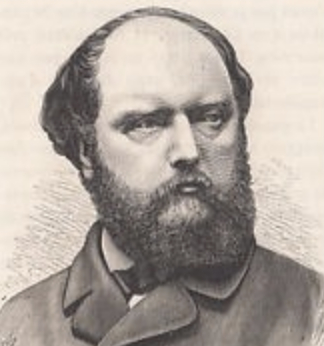
On this date in 1822, François-Désiré Bancel was born in France. He was educated at Touron and Grenoble, became a lawyer and then a member of the Legislative Assembly in 1849. Bancel was known as one of the most passionate critics of the royalists and clerics. After Napoleon III expelled him in 1852, he moved to Brussels and taught at the Free University.
A deist, according to freethought historian Joseph McCabe, he “gave great assistance in the Belgian Rationalist movement.” Bancel was again elected to the legislature in 1869 upon his return to France. A boulevard in Valence and a street in Lyon bear his name. (D. 1871)
Charles Watts
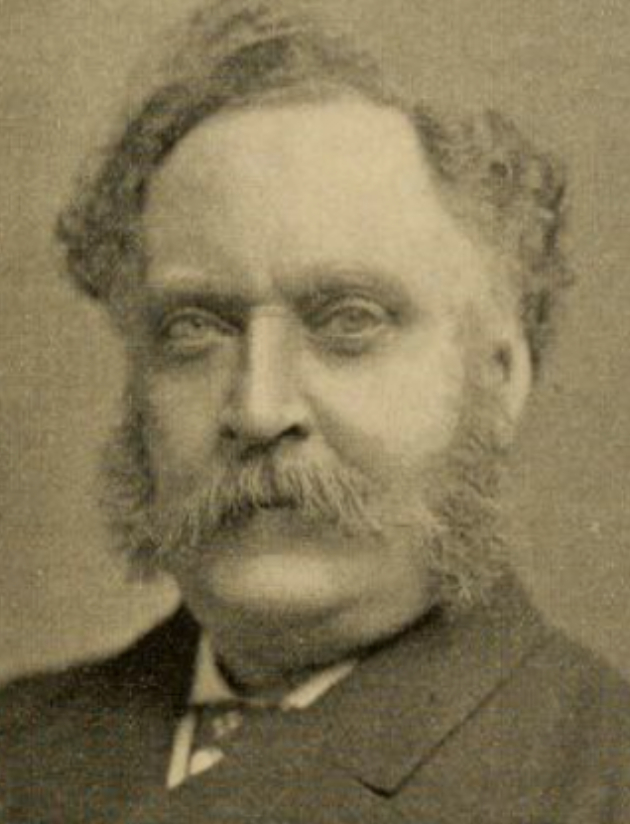
On this date in 1836, Charles Watts was born in Bristol, England, into a family of Methodists. At age 16 he moved to London to work with his older brother in a printing office. The brothers were acquainted with many freethinkers and founded a publishing business, Watts & Co., in 1864. Along with Charles Bradlaugh and others, Watts co-founded the National Secular Society in 1866.
Watts wrote extensively on freethought, including Freethought: Its Rise, Progress and Triumph (1885). In an 1868 pamphlet on Christianity, he wrote: “In Spain religion is cruel oppression, in Scotland it is a gloomy nightmare, in Rome it is priestly dominion, while in England it is simply emotional pastime. All these different phases of Christianity indicate that theological opinions depend on surrounding circumstances, and cannot therefore be the cause of the civilisation of the world.”
He emigrated to Toronto in 1883, where he lectured and became the leader of the secularist movement in Canada. Returning to England in 1891, he worked for The Freethinker, the world’s oldest surviving freethought publication (internet-only since 2014). Watts’ wife, Kate Eunice Watts, also wrote and traveled with him. Some of her writings included The Education and Position of Woman and Christianity: Defective and Unnecessary.
Watts died at age 70 and was cremated, with his remains buried in Highgate Cemetery in North London. His son, Charles Albert Watts, developed the Rationalist Press Association, still in existence as the Rationalist Association. (D. 1906)
"The object of Christ was to teach his followers how to die, rather than to instruct them how to live.”
— from Watts' pamphlet "Christianity: Its Nature and Influence on Civilisation" (1868)
Ed Schempp
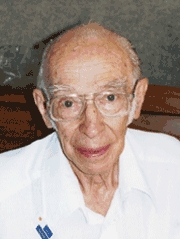
On this date in 1908, Ed Schempp was born. (He was actually born on Feb. 29, a date this software wants to recognize as March 1.) He and his son Ellery launched the landmark lawsuit Abington School District v. Schempp to contest a Pennsylvania law mandating daily bible readings in public schools. The U.S. Supreme Court issued an 8-1 ruling in 1963 barring mandatory bible reading in public schools, which followed its 1962 decision barring prayer. “In the relationship between man and religion, the state is firmly committed to the position of neutrality,” Justice Tom Clark wrote for the majority. The only dissent was from Justice Potter Stewart, who wanted the case remanded to the lower courts.
A native Philadelphian, Schempp took over his father’s hardware business as a young man and later worked in electronics. He was active in Unitarianism and peace groups. He was a longtime FFRF member and honorary officer and was featured in FFRF’s 1988 film “Champions of the First Amendment.” He and his wife of 69 years, Sydney, had three children. D. 2003.
"Freedom of religion includes freedom from religion. … Why don’t we celebrate living, instead of worrying about damnation and sin?"
— Schempp, acceptance speech as 1996 Humanist of the Year, awarded by the American Humanist Association
William Stewart Ross
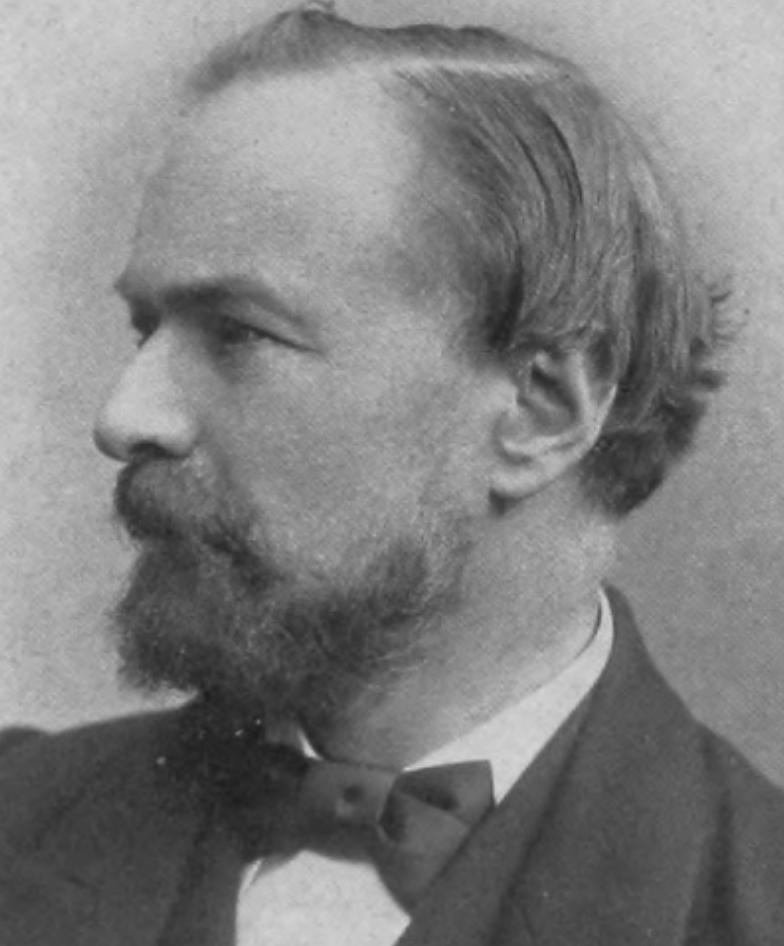
On this date in 1844, William Stewart Ross (“Saladin”) was born in Scotland. While preparing for the ministry at Glasgow University, Ross became a rationalist and gave up the church. He set up his own publishing company, W. Stewart & Co., in London. By 1880 he was co-editor of the Secular Review. Later becoming its sole editor and owner, he changed the name to the Agnostic Journal and Secular Review in 1889 and shortly thereafter to the Agnostic Journal and Eclectic Review. The last issue was published in June 1907.
Ross was not an admirer of the famous British atheist Charles Bradlaugh, and his journal and essays represented an alternative style. He wrote under the nom de plume of “Saladin” (the Muslim fighter who halted the Third Crusade). His books include God and His Book (1887) and Woman: Her Glory and Her Shame (two volumes, 1894). In 1879 he won a gold medal for writing the best poem to memorialize the unveiling of a statue of Robert Burns. Confined in his last years due to sclerosis, he died in 1906 at age 62.
“Christianity claims to have originated lunatic asylums. If I were to claim that it was I who made the moons of Jupiter and placed the belt round Saturn, I should be nearly as preposterous as Christianity is when she claims to have originated asylums for the insane. … If the preacher would stand up in his pulpit and whine, ‘My dear Christian brethren, our blessed religion did not originate lunatic asylums; but it has made up for that by making millions of lunatics,’ he would speak only the sober truth.”
— W.S. Ross, Chapter XXXII, "God and His Book" (1887)
Matilda Joslyn Gage
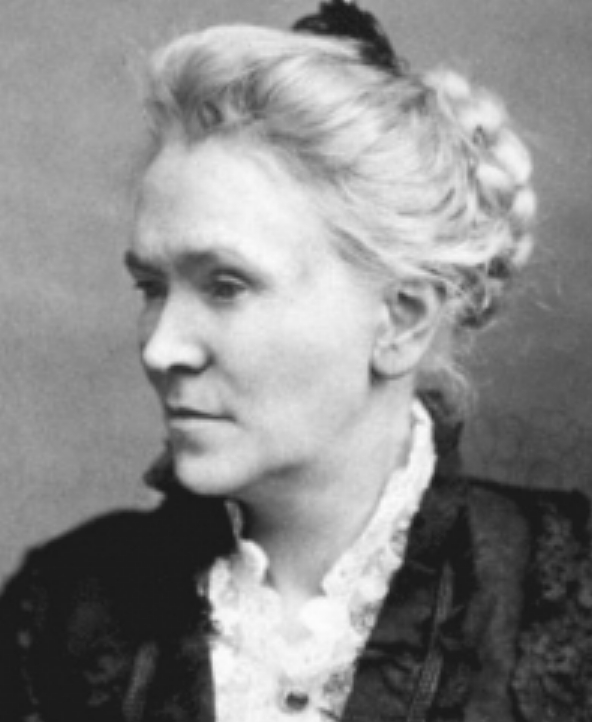
On this date in 1826, suffragist Matilda Electa Gage (née Joslyn) was born in Cicero, N.Y. Her father was Dr. Hezekiah Joslyn, whose home was a station on the underground railroad and who advocated for abolition of slavery, women’s rights, freethought and temperance. She married merchant Henry Gage at age 18 and gave birth to five children, one of whom died in infancy.
A founding member and later president of the National Woman Suffrage Association, Gage expressed indignation over “the wrongs inflicted upon one-half of humanity by the other half in the name of religion.” She delivered a major address, “Woman, Church, and State,” at a suffrage convention in 1878. By popular response, she later turned this address into a book of the same name in 1893. It documented woman-hating abuses ranging from celibacy to witch hunts that stemmed from religious doctrines.
Gage convened the historic Woman’s National Liberal Union in 1890, the first feminist group devoted to the promotion of the separation of church and state. Her warning of a union of Catholics and Protestants whose agenda was to put God in the Constitution and attack secular schools, is eerily timely today: “[I]n order to help preserve the very life of the Republic, it is imperative that women should unite upon a platform of opposition to the teaching and aim of that ever most unscrupulous enemy of freedom — the Church.”
She died in Chicago at age 71. Carved on her tombstone in Fayetteville, N.Y., is her well-known motto: “There is a word sweeter than Mother, Home, or Heaven; that word is Liberty.” (D. 1898)
"During the ages, no rebellion has been of like importance with that of Woman against the tyranny of the Church and State; none has had its far reaching effects. We note its beginning; its progress will overthrow every existing form of these institutions; its end will be a regenerated world."
— "Woman, Church, and State" by Matilda Joslyn Gage (1893)
Courtlandt Palmer
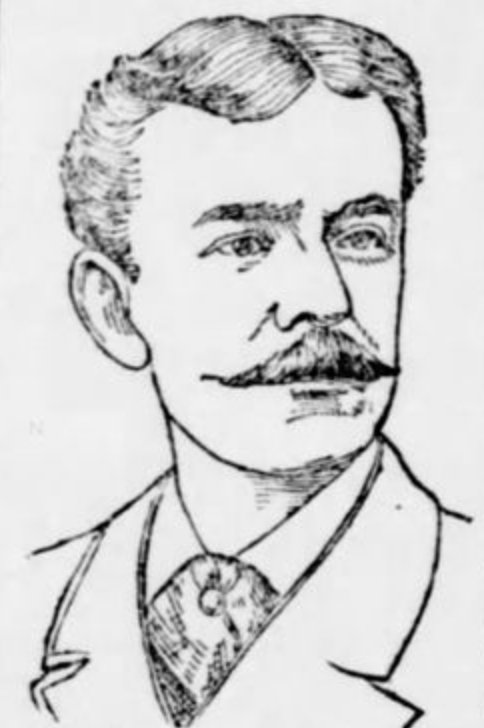
On this date in 1843, writer Courtlandt Palmer was born in New York. An 1869 graduate of Columbia Law School and heir to family wealth, Palmer used both assets to promote rationalism. He had rejected the Dutch Reformed church of his family at an early age. He founded the Nineteenth Century Club to promote freethought, serving as its first president. He also wrote for The Truth Seeker and other freethought publications.
The New York Sun, in its obituary, lauded Palmer for “a surpassing feat in making fashionable in New York a sort of discussion which before had been frowned upon as in the last degree pernicious, and especially unbefitting polite and conservative society. He set people to thinking and talking over moral and religious questions, which they had not dared to consider, and made familiar to them views from which they had turned in alarm as morally poisonous and soul-destroying.
The Sun obituary continued: “The Nineteenth Century Club was established as a Freethinking debating society, and not many years ago it would have been avoided and denounced as an institution for the propagation of Infidelity and odious Radicalisms. Yet under Mr. Palmer’s lead the club received the stamp of fashionable approval, and its discussions have been carried on before crowded assemblages of ladies and gentlemen in full evening dress. … Where they had been sure there was only one possible side, they saw other people found many sides.”
The obituary also noted that Palmer’s death at age 45 of peritonitis defied the stereotype “that the deathbed of the unbeliever is an agonizing one.” It noted his final words to family were “I want you one and all to tell the whole world that you have seen a Freethinker die without the last fear of what the hereafter may be.” (D. 1888)
"He investigated for himself the questions, the problems, and the mysteries of life. Majorities were nothing to him. No error could be old enough, popular, plausible, or profitable enough, to bribe his judgment or to keep his conscience still. He was a believer in intellectual hospitality, in the fair exchange of thought, in good mental manners, in the amenities of the soul, in the chivalry of discussion. He believed in the morality of the useful, that the virtues are the friends of humanity, the seeds of joy. He lived and labored for his fellow men."
— Robert G. Ingersoll's funeral oration on behalf of Palmer, cited in "Four Hundred Years of Freethought" by S.P. Putnam (1894)
Corliss Lamont
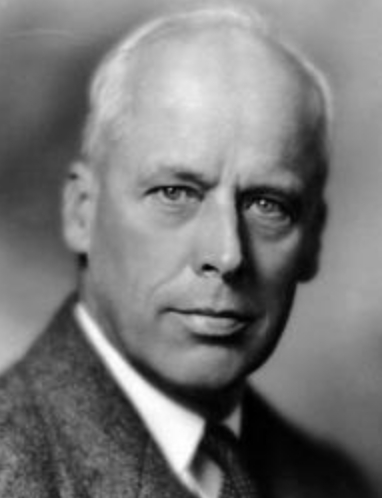
On this date in 1902, Corliss Lamont was born in Englewood, N.J. His father, Thomas W. Lamont, was a chairman of J.P. Morgan & Co. He attended Phillips Exeter Academy and received his bachelor’s degree from Harvard University in 1924. He went on to obtain his Ph.D. in philosophy from Columbia University in 1932. Lamont supported many radical causes, including socialism, and although he never joined the Communist Party, he was strongly opposed to the persecution of communists.
He served as the director of the the American Civil Liberties Union from 1932 until 1954. He was a founder in 1954 of the National Emergency Civil Liberties Committee. After being called before the House Un-American Activities Committee because of a book he had written, The Peoples of the Soviet Union (1946), he was cited for contempt of Congress. The indictment was dismissed by the Court of Appeals on the grounds that he was outside the jurisdiction of the committee.
Lamont wrote many books, pamphlets and essays, including many on humanism. His influential book The Philosophy of Humanism (1949), was based on a course he taught at Columbia in the 1940s and 1950s on naturalistic humanism. Other books on humanist subjects include his classic The Illusion of Immortality (1935), which argued against the imortality of the soul. He also wrote A Humanist Funeral Service (1954) and A Humanist Wedding Service (1970).
He was an active member for many years of the American Humanist Association and in 1977 received its Humanist of the Year award. He died of heart failure at age 93 in 1995.
"The greatest difference between the Humanist ethic and that of Christianity and the traditional religions is that it is entirely based on happiness in this one and only life and not concerned with a realm of supernatural immortality and the glory of God. Humanism denies the philosophical and psychological dualism of soul and body and contends that a human being is a oneness of mind, personality, and physical organism. Christian insistence on the resurrection of the body and personal immortality has often cut the nerve of effective action here and now, and has led to the neglect of present human welfare and happiness."
— Lamont, "The Affirmative Ethics of Humanism," The Humanist (March/April 1980)
Hypatia Bradlaugh Bonner
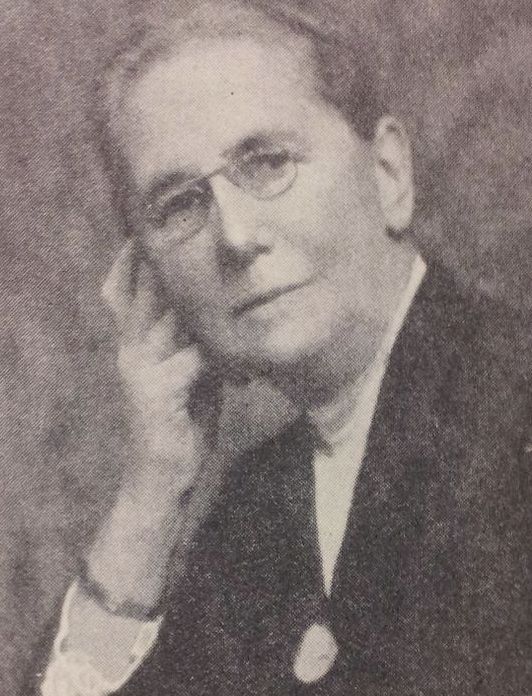
On this date in 1858, Hypatia Bradlaugh (later Bonner) was born in London. The namesake of the murdered pagan lecturer of Alexandria, she was the daughter of Charles Bradlaugh, who triumphed after a long battle to be seated in Parliament as an atheist. Matriculating at London University, Bonner became a teacher at the Hall of Science run by her father’s National Secular Society. When she married Arthur Bonner in 1882, they merged their surnames and had two sons, one of whom survived.
After her father died in 1891, she wrote his biography and was forced by constant slanders of deathbed conversions to correct the public record, even taking successful court action.
An ardent opponent of the death penalty, proponent of penal reform, peace advocate and feminist, Bonner lectured widely. She founded the Rationalist Peace Society in 1910. She edited a journal, The Reformer (1897-1904). She was part of the Rationalist Press Association, worked against blasphemy laws and was appointed justice of the peace for London, serving from 1922-34, as a reward for 40 years of public service.
Her books include Penalties Upon Opinion (1912), The Christian Hell (1913) and Christianity and Conduct (1919). In her final “Testament,” she wrote, “Away with all these gods and godlings; they are worse than useless.” D. 1934.
PHOTO: Bonner in 1929, five years before she died after surgery for abdominal cancer.
"Heresy makes for progress."
— Motto of The Reformer, the journal edited by Bonner
Lloyd Morain
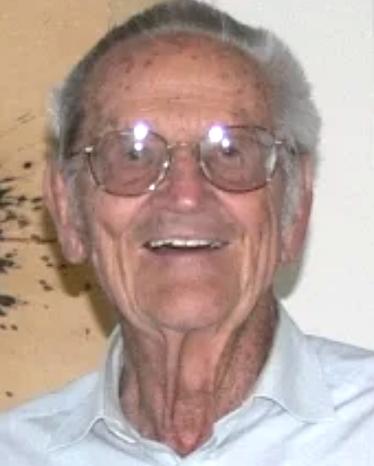
On this date in 1917, Lloyd Morain was born in Pomona, Calif. He grew up in California and, after winning a scholarship essay contest, graduated from UCLA. During World War II he served in Britain with the U.S. Air Corps. Already active in the American Humanist Association, while in Britain he met with humanist groups with the goal of greater international humanist cooperation after the war. He continued this work, moving on to continental Europe, in the late 1940s.
In 1952 he and his wife, Mary Stone Dewing Morain, were among the founders of the International Humanist and Ethical Union. At the time, Morain was serving as president of the American Humanist Organization, a role he filled from 1951-55 and again from 1969-72. In the 1950s, Morain and his wife were also involved in supporting humanist organizations all over the world, including in traditionally religious regions of Africa. In 1954, they wrote the book Humanism as the Next Step: An Introduction for Liberal Protestants, Catholics, and Jews, which remains in print in a revised edition.
Morain served as the editor of Humanist Magazine from 1978-90. Though his early background was in psychological consulting, and he continued to work for the mining and utilities industries, he dedicated much of his life to humanist and social causes, including family planning and homelessness. He received several awards from AHA throughout his career: the Humanist Merit Award in 1956, the Humanist Distinguished Service Award in 1972 and the Humanist Heritage Award in 2007. In 1994 he and his wife won the Humanist of the Year Award jointly. (D. 2010)
“Back through the centuries whenever people have enjoyed keenly the sights and sounds and other sensations of the world about them, and enjoyed these for what they were — not because they stood for something else — they were experiencing life humanistically.”
— Morain, "Humanism as the Next Step" (1954)
Elihu Palmer
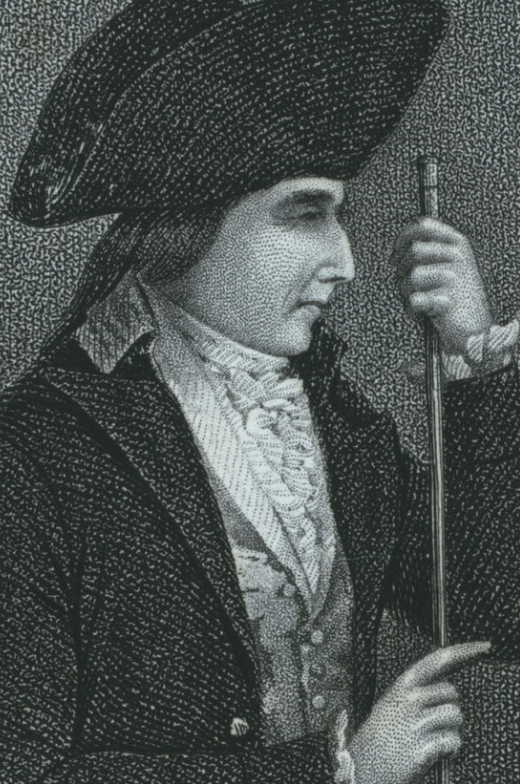
On this date in 1764, Elihu Palmer was born in Canterbury, Conn. Palmer graduated from Dartmouth in 1787, read theology and proved to be an unpopular minister in Presbyterian and Baptist congregations, where he spoke as a deist against the divinity of Jesus Christ. He switched to law and was admitted to the bar in Philadelphia in 1793. Yellow fever had killed his young wife and blinded Palmer.
He was invited to found the Deistical Society of New York, and lectured widely on the East Coast. He wrote orations, opinion pieces and the book Principles of Nature; or, A Development of the Moral Causes of Happiness and Misery Among the Human Species (c. 1801), in which he wrote that “the world is infinitely worse” for following Jesus.
Palmer also founded Prospect, a journal that was published from 1803-05. Unlike many deists, Palmer argued that the flawed teachings of Jesus were responsible for Christianity’s sordid history. According to Roderick C. French’s entry in Encyclopedia of Unbelief, Palmer wrote that he preferred “the correct, the elegant, the useful maxims of Confucius, Antoninus, Seneca, Price and Volney.”
When Thomas Paine was universally ostracized for writing The Age of Reason, Palmer and his second wife, who nursed Paine, remained steadfast friends. Palmer was only 42 when he died during a speaking tour. D. 1806.
"Another important doctrine of the Christian religion, is the atonement supposed to have been made by the death and sufferings of the pretended Saviour of the world; and this is grounded upon principles as regardless of justice as the doctrine of original sin. It exhibits a spectacle truly distressing to the feelings of the benevolent mind, it calls innocence and virtue into a scene of suffering, and reputed guilt, in order to destroy the injurious effects of real vice."
— Palmer, "Principles of Nature" (1801)
Abner Kneeland
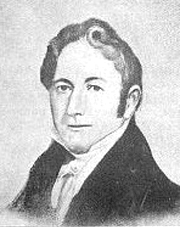
On this date in 1774, Abner Kneeland was born in Massachusetts to a Congregationalist family. As a founding member of the Universalists, he served as a minister from 1804-29. When freethinker Frances Wright embarked on her famous lecture tour, becoming the first woman to speak in public in the U.S., New York City halls were closed to her. Kneeland invited her to speak from the pulpit of his Second Universalist Society in 1829, consequently lost his position and was later disfellowshipped by the church.
Kneeland’s lectures against Christianity in August 1829 were published as A Review of the Evidences of Christianity. He founded a group of freethinking New Yorkers, which met in Tammany Hall for a decade. Kneeland’s Rationalism of the Enlightenment made him a leading proponent of universal public education and the Workingmen Party.
Moving to Boston in 1830, Kneeland founded the Boston Investigator, the oldest 19th-century freethought newspaper in the U.S. His Sunday lectures to the First Society of Free Enquirers attracted crowds and the attention of influential critics. He was charged with blasphemy in 1834 for saying he did not believe in God, undergoing three trials. The prosecuting attorney for the Commonwealth of Massachusetts told the jury that if Kneeland was not punished, “marriages [will be] dissolved, prostitution made easy and safe, moral and religious restraints removed, property invaded, and the foundations of society broken up, and property made common.”
His appeal to the state Supreme Court ended with a split verdict of guilty in 1838 and he served a 60-day sentence. He moved to Iowa Territory, co-founding a freethinking settlement known as Salubria (near present-day Farmington) and becoming chair of the Van Buren County Democratic convention in 1842. An anti-infidel opposition party burned Kneeland in effigy and defeated his ticket, which was known by missionaries as “Kneelandism.”
His versatile writings included a popular spelling reader, an annotated New Testament, an edition of Voltaire‘s Philosophical Dictionary, and the two-volume The Deist (1829). D. 1844.
“Universalists believe in a god which I do not; but believe that their god, with all his moral attributes, (aside from nature itself,) is nothing more than a chimera of their own imagination.”
— Kneeland letter to Universalist editor Thomas Whittemore, Boston Investigator (Dec. 20, 1833)
Mattie Parry Krekel
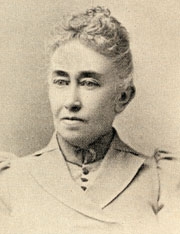
On this date in 1840, freethought lecturer Mattie Parry Krekel was born in Goshen, Indiana, to John M. Hulett and Lucinda Jay (a direct descendant of revolutionary John Jay). Mattie liked to thank her parents for being liberal in their religious views, noting that her life had not been twisted or distorted by ecclesiastical influences which enslave the mind. She began lecturing at age 15 in Rockford, Illinois, and retired only in 1900. Mattie married T.W. Parry in 1862 and had six children, four sons and two daughters. Following his death she later married Judge Arnold Krekel of Missouri.
She was well-known on the freethought lecture circuit, or “Liberal platform.” Freethought biographer S.P. Putnam called her “one of the bravest and staunchest lecturers in the field … eloquent, scholarly, logical, ready for any hardship; has plenty of grit. … She is well informed on subjects pertaining to science and reform, and is in thorough sympathy with those who suffer and toil because of ignorance and superstition.” (Four Hundred Years of Freethought, 1894).
“Up to the beginning of the present century there were few names more familiar to readers of The Truth Seeker than Mattie Parry Krekel,” noted George E. Macdonald, one of the newspaper’s longest-lived editors (Fifty Years of Freethought, 1929). (D. 1921)
Christopher Hitchens
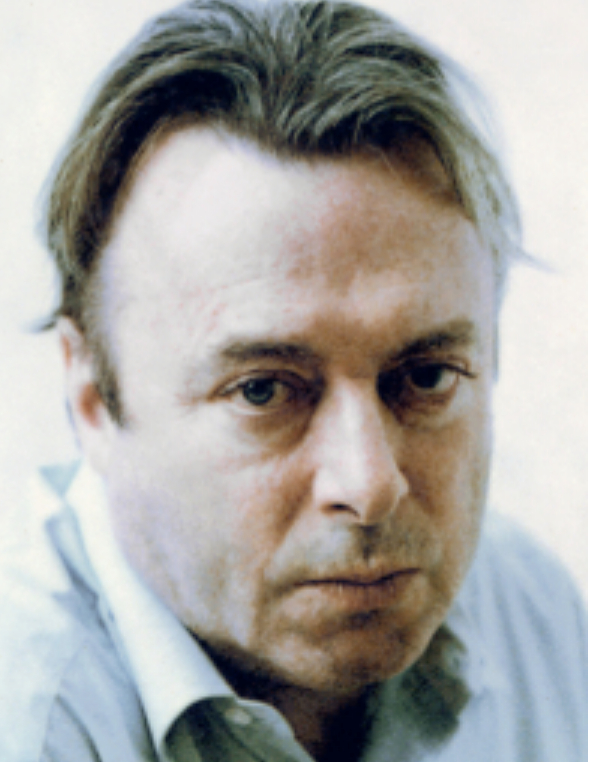
On this date in 1949, writer and columnist Christopher Eric Hitchens was born in Portsmouth, England. He attended Cambridge and graduated from Oxford in 1970, reading in philosophy, politics and economics. From 1971-81 he worked as a book reviewer for The Times of London.
In 1981 he emigrated to the United States. He wrote “Minority Report,” a column for The Nation, from 1982-2002. He then wrote for Slate, The Daily Mirror, The Atlantic Monthly, Vanity Fair, Harper’s and several other publications. As a foreign correspondent, he covered events in 60 countries on five continents. He became a U.S. citizen in 2007.
Hitchens wrote a host of books, but is best-known in freethought circles for authoring The Missionary Position: Mother Teresa in Theory and Practice (1995) and God Is Not Great: How Religion Poisons Everthing (2007). His criticisms of President Clinton and support for President Bush’s 2003 invasion of Iraq made him increasingly controversial among progressive readership, but he remained a stalwart atheist and iconoclast. When the Freedom From Religion Foundation instituted its Honorary Board of Directors in 2010, Hitchens was a member.
In “Papal Power: John Paul II’s other legacy” (Slate.com, April 1, 2005), Hitchens pointed out that the pope “was a part of the cover-up and obstruction of justice that allowed the child-rape scandal to continue for so long.”
Hitchens married Eleni Meleagrou, a Greek Cypriot, in 1981. They had a son, Alexander, and a daughter, Sophia. After divorcing, he married Carol Blue, an American screenwriter, in a ceremony at the apartment of Victor Navasky, editor of The Nation. He and Blue had a daughter, Antonia.
After being diagnosed in 2010 with esophageal cancer, he died of pneumonia at age 62 at the M.D. Anderson Cancer Center in Houston. (D. 2011)
“Gullibility and credulity are considered undesirable qualities in every department of human life — except religion. … Atheism strikes me as morally superior, as well as intellectually superior, to religion. Since it is obviously inconceivable that all religions can be right, the most reasonable conclusion is that they are all wrong.”
— Hitchens, "The Lord and the Intellectuals," Harper's (July 1982)
George Jacob Holyoake
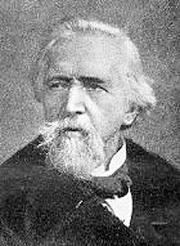
On this date in 1817, George Jacob Holyoake was born to a poor family in England. The young foundry worker attended classes in his free time, becoming a mathematics teacher. By 1840, Holyoake was a lecturer at the Worcester Hall of Science. Best-known for coining the term “secularist,” Holyoake dedicated his life to freethought. He was sentenced to six months in jail for saying England was “too poor” to support a God and should consider retiring him. He founded and edited a number of freethought journals, including Reasoner (1846-50), Leader (1850) and Secular Review (1876).
Holyoake wrote more than 160 pamphlets and works, including the books Origin and Nature of Secularism (1896), his autobiography, Sixty Years of an Agitator’s Life (1892), and the two-volume Bygones Worth Remembering (1905). He was president of the British Secular Union for many years, and became the first chair of the Rationalist Press Association.
As an Owenite, Holyoake was an ardent reformer who put causes over personal gain, helped work for women’s rights, political and educational reform, and personally aided refugees fleeing persecution. Contemporary American agnostic Robert G. Ingersoll wrote on Aug. 8, 1888: “There is no man for whom I have greater respect, greater reverence, greater love, than George Jacob Holyoake.” (D. 1906)
"Free thought means fearless thought. It is not deterred by legal penalties, nor by spiritual consequences. Dissent from the Bible does not alarm the true investigator, who takes truth for authority not authority for truth.”
— Holyoake, "The Origin and Nature of Secularism" (1896)
Thomas Scott
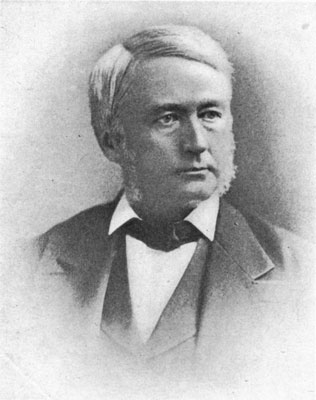
On this date in 1808, Thomas Scott was born. Educated in France as a Catholic and independently wealthy, he served as a page at the court of Charles X. Scott became a rationalist as he approached the age of 40. From 1862 to 1877, he funded and distributed more than 200 pamphlets critical of religion, which were later compiled into 16 volumes. He wrote a few himself, but mainly published well-known freethinkers, such as Moncure Daniel Conway.
Scott disseminated his pamphlets to the clergy as well as the public. From his own printing house in Ramsgate, Scott published Jeremy Bentham‘s Church of England Catechism Examined and Hume‘s Dialogues on Natural Religion. According to Joseph McCabe, The English Life of Jesus (1872), which Scott published and bears Scott’s name, was actually written, at least in part, by the Rev. Sir G.W. Cox. (A Biographical Dictionary of Modern Rationalists) McCabe wrote that Scott “rendered a most valuable service to the cause in England.” (D. 1878)
Thomas Huxley
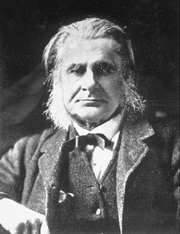
On this date in 1825, Thomas Henry Huxley was born in England. Huxley coined the term “agnostic” (although George Jacob Holyoake also claimed that honor). Huxley defined agnosticism as a method, “the essence of which lies in the rigorous application of a single principle … the axiom that every man should be able to give a reason for the faith that is in him.” Huxley elaborated: “In matters of the intellect, follow your reason as far as it will take you, without any other consideration. And negatively, in matters of the intellect do not pretend that conclusions are certain which are not demonstrated or demonstrable.” (From his essay “Agnosticism.”)
Huxley received his medical degree from Charing Cross School of Medicine, becoming a physiologist. He had spent his youth exploring science, especially zoology and anatomy, lecturing on natural history and writing for scientific publications. He was president of the Royal Society and was elected to the London School Board in 1870, where he championed a number of common-sense reforms.
Huxley earned the nickname “Darwin’s Bulldog” when he debated Darwin’s On the Origin of Species with Bishop Samuel Wilberforce in Oxford in 1860. When Wilberforce asked him which side of his family contained the ape, Huxley famously replied that he would prefer to descend from an ape than a human being who used his intellect “for the mere purpose of introducing ridicule into grave scientific discussion.”
Thereafter, Huxley devoted his time to the defense of science over religion. His essays included “Agnosticism and Christianity” (1889). His three rationalist grandsons were biologist Sir Julian Huxley, novelist Aldous Huxley and Henry Fielding Huxley, co-winner of a 1963 Nobel Prize. Huxley, appropriately, received the Darwin Medal in 1894. (D. 1895)
"Skepticism is the highest duty and blind faith the one unpardonable sin."
— Huxley, "Essays on Controversial Questions" (1889)
Ella E. Gibson
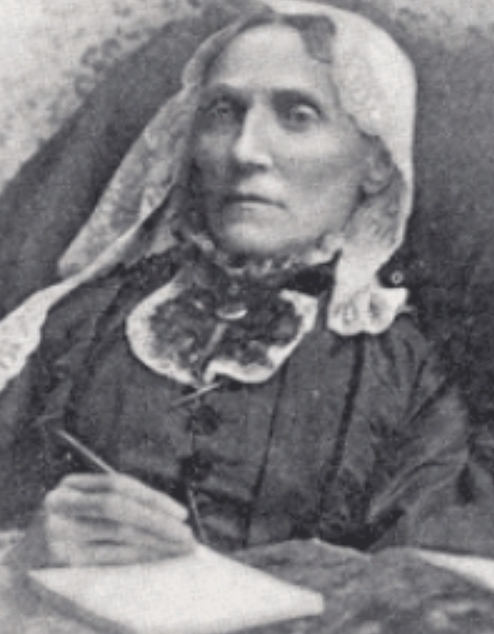
On this date in 1821, Ella Elvira Gibson was born in Winchendon, Mass. After teaching school, she married John Hobart in 1861. He was appointed chaplain of the Wisconsin 8th Volunteer Infantry Regiment and she worked alongside him before being appointed chaplain of the 1st Wisconsin Heavy Artillery Regiment after her 1864 ordination. Secretary of War Edwin Stanton refused to muster her because she was a woman. Despite that, she served at her post at Fort Lyon in Alexandria, Va., through the end of the war.
By an act of Congress in 1869, pay for her services was belatedly approved in the amount of $1,210. She did not receive her pension until 1876, then distributed most of it to freethought causes, which she had embraced soon after the war. She had divorced Hobart in 1868 and assumed her maiden name.
While serving, Gibson contracted malaria, which severely disabled her. Even when confined to bed, she wrote for nearly every freethought newspaper in the U.S. and edited “The Moralist” during the early 1890s. Her book The Godly Women of the Bible by an Ungodly Woman of the Nineteenth Century, the first such treatment of the bible, was published by The Truth Seeker Co. in the 1870s and was continuously in print for the next three decades.
She died at age 79 in Barre, Mass. No funeral was held and her remains were cremated. A hundred years later, a military appropriations bill in 2001 granted her the rank of captain in the Chaplains Corps of the U.S. Army. (D. 1901)
"The abominable laws respecting [women in the Bible] … are a disgrace to civilization and English literature; and any family which permits such a volume to lie on their parlor-table ought to be ostracized from all respectable society."
— Gibson, "The Godly Women of the Bible by an Ungodly Woman of the Nineteenth Century"
Robert Owen
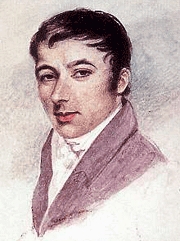
On this date in 1771, reformer and philanthropist Robert Owen was born in Newtown, Wales. He became known as “a capitalist who became the first Socialist.” Owen started work as a clerk at age 9. With help from a sympathetic cloth merchant to whom he was apprenticed, Owen educated himself. He was an unbeliever by 14, influenced by Seneca, and his acquaintance with chemist John Dalton and Samuel Taylor Coleridge.
By 18, Owen established a small spinning mill in Manchester. In 1799 he married Ann Dale, the daughter of a Glasgow cotton manufacturer, purchasing his father-in-law’s New Lanark mills in Scotland. Owen set out to put his humanitarian creed into practice and turned New Lanark into a model community attracting the attention of reformers around the world.
Owen set up the first infant school in Great Britain and a three-grade school for children under 10. He appealed to the government and other manufacturers to follow his lead but was rebuffed by clergy-led opposition when his views on religion became widely known. At an 1817 public meeting calling for “villages of unity and cooperation,” living wages and education of the poor at the City of London Tavern, Owen called “all religions” false.
He sought to limit hours for child labor in mills in 1815 and saw passage of a watered-down Factory Act in 1819. Owen’s Essays on the Principle of the Formation of Human Character (1816) were his major treatises, in which he advised, “Relieve the human mind from useless and superstitious restraints.”
He founded New Harmony, a model settlement in Indiana in 1825-28, a failed venture which he signed over to his sons Robert Dale and William Owen. Owen wrote Debate on the Evidences of Christianity (1829). Owen founded The Economist in 1821 to promote his progressive views and The New Moral World in 1834, along with an ethical movement called “Rational Religion.”
His “Halls of Science” attracted thousands of nonreligious followers (“Owenites”) and many trade unionists. An essay titled “Scientific Socialism: The Case of Robert Owen” by David Leopold describes the Halls of Science as:
“a base for ‘social missionaries’ and cultural and leisure activities for members (typically drawn from the best paid strata of the working class). By 1840 there were over sixty branches, with weekly events — including dances, concerts, lectures, and debates (all with a whiff of teetotalism) — ‘instituted to improve the habits and manners of the working classes, and more generally to cultivate kindly feeling and social fellowship among all classes.’ Owenite events sometimes shadowed the Christian calendar, with branches providing Owenite sermons and hymns on Sundays, and even Owenite rites for baptisms, marriages, and funerals.”
His autobiography was published in 1857-58. Joseph McCabe called him “the father of British reformers, and one of the highest-minded men Britain ever produced.” (Biographical Dictionary of Modern Rationalists, 1920.) (D. 1858)
"Finding that no religion is based on facts and cannot therefore be true, I began to reflect what must be the condition of mankind trained from infancy to believe in errors."
— Owen, "Evidences of Christianity: A Debate with Alexander Campbell and Robert Owen" (1829)
Barbara Smoker
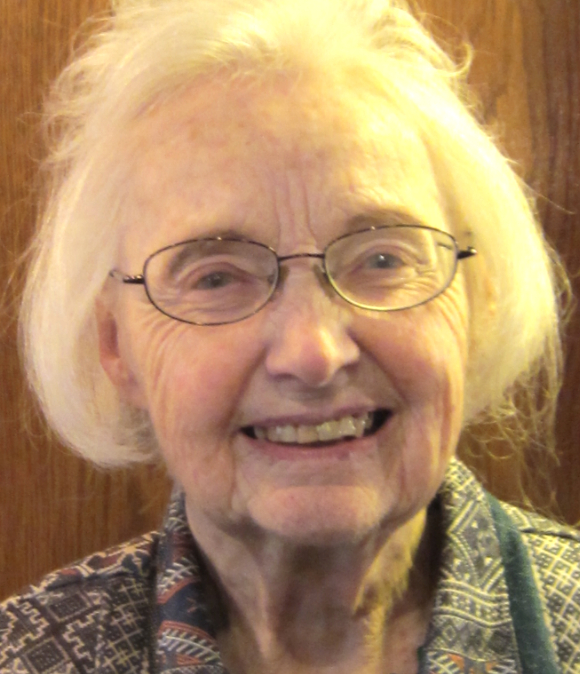
On this date in 1923, Barbara Smoker was born in Great Britain. Such a devout Roman Catholic that she considered becoming a nun, Smoker renounced religious faith at age 26 and became a secular humanist activist instead. She served as president of the National Secular Society (NSS), the most militant of the British secular groups, from 1971-96. Her script “Why I Am an Atheist” was recorded for the BBC in 1985. She fought a statutory ban on embryo research with a pamphlet, “Eggs Are Not People,” distributed to all members of Parliament in 1985.
In the tradition of 19th-century secular activists Charles Bradlaugh and Annie Besant, Smoker officiated at more than 400 humanist funerals, as well as at weddings and analogous ceremonies on behalf of the Gay and Lesbian Humanist Association, which she co-founded. Smoker served as chair of the Voluntary Euthanasia Society from 1981-85, editing Voluntary Euthanasia: Experts Debate the Right to Die (1986).
When Muslims held a London demonstration in May 1989 against Salman Rushdie, Smoker, holding a banner reading “Free Speech,” was attacked by a surge of demonstrators and was rescued by a police officer.
Smoker remained active in the NSS for the rest of her life. In 2019 she published her autobiography “My Godforsaken Life: Memoir of a Maverick.” She also received a lifetime achievement award from the NSS in 2019.Smoker remained active in the NSS for the rest of her life. In 2019 she published her autobiography “My Godforsaken Life: Memoir of a Maverick.” She also received a lifetime achievement award from the NSS in 2019.
She died at Lewisham Hospital at age 96. (D. 2020)
"People who believe in a divine creator, trying to live their lives in obedience to his supposed wishes and in expectation of a supposed eternal reward, are victims of the greatest confidence trick of all time."
— Smoker, "So You Believe in God!" (1974 pamphlet)
Alice Hubbard
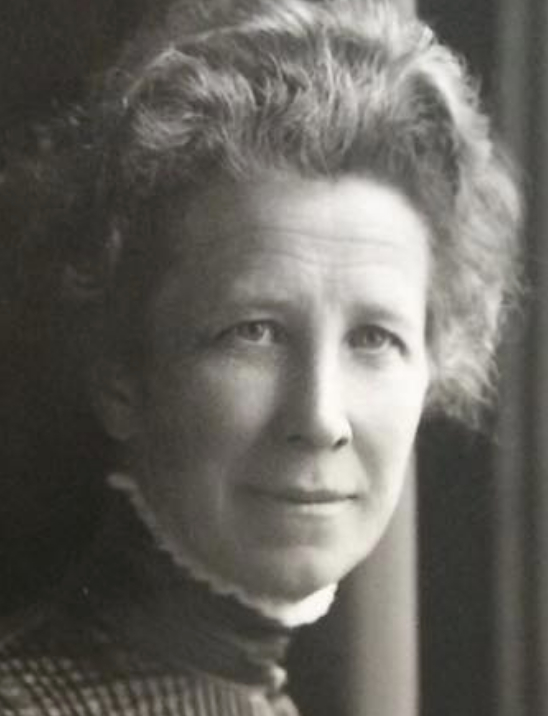
On this date in 1861, Alice Hubbard (née Moore) was born. She was educated at State Normal School in Buffalo, New York, and the Emerson College of Oratory in Boston. She married Elbert Hubbard and became general superintendent of Hubbard’s Roycroft Shop, as well as manager of the Roycroft Inn and principal of Roycroft School for Boys. The couple espoused egalitarian marriage and feminism. Her husband, a freethinker like Alice, was a famous and respected writer particularly known for his aphorisms.
Alice Hubbard wrote several books, including Woman’s Work: Being an Inquiry and an Assumption (1908) and edited An American Bible (1912). In the introduction of that book, Alice wrote: “This is the book we offer — a book written by Americans, for Americans. It is a book without myth, miracle, mystery, or metaphysics — a commonsense book for people who prize commonsense as a divine heritage. The book that will benefit most is the one that inspires men to think and to act for themselves.”
Her chapters edit the writings of “the Prophets” (all of whom have biographical entries on this site): Benjamin Franklin, Thomas Jefferson, Thomas Paine, Abraham Lincoln, Walt Whitman, Ralph Waldo Emerson and her husband. The book is printed like a modern-day bible, in two-column script excerpting nuggets of wisdom from the selected American authors. The couple tragically went down on the Lusitania and lost their lives along with nearly 1,200 others. (D. 1915)
"The world can only be redeemed through action — movement — motion. Uncoerced, unbribed and unbought, humanity will move toward the light."
— Alice Hubbard's introduction to "An American Bible" (1912)
Joseph Lewis
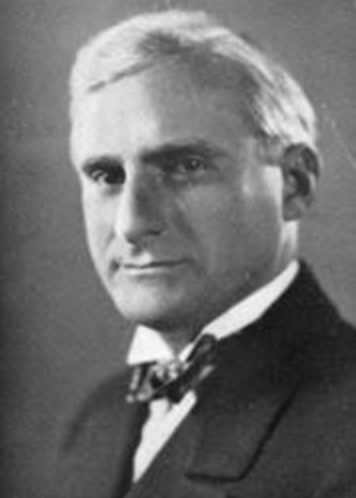
On this date in 1889, Joseph Lewis was born in Montgomery, Ala., where he left school at age 9 to find employment. Self-educated, he read Robert G. Ingersoll and Thomas Paine, his lifelong “idol.” Moving to New York City in 1920, Lewis became president of Freethinkers of America. He started his own publishing house, the Freethought Press Association.
His many books include The Tyranny of God (1921), Lincoln, the Freethinker (1925), Jefferson, the Freethinker (1925), The Bible Unmasked (1926), Franklin, the Freethinker (1926), Burbank, the Infidel (1929), Atheism, a collection of his public addresses (1930), Voltaire, the Incomparable Infidel (1929), The Bible and the Public Schools (1931), Should Children Receive Religious Instruction? (1933), The Ten Commandments (1946), Thomas Paine, Author of the Declaration of Independence (1947) and In the Name of Humanity (1949), which condemned circumcision. His book An Atheist Manifesto, 1954, was his major treatise on freethought.
Lewis began publishing a bulletin, Freethinkers of America, in 1937, which was renamed Freethinker in the 1940s, and finally Age of Reason in the 1950s. Lewis persuaded the government of France to erect a sculpture of Paine by Gutzon Borglum (the Mount Rushmore sculptor) in Paris. Lewis also dedicated statues to Paine in Morristown, NJ., in 1950 and in front of Paine’s place of birth in Thetford, England, in 1964.
Lewis took numerous court cases to protect the separation of church and state, seeking punitive damages from New York’s Trinity Church when it erected a plaque with a bogus prayer by George Washington (Lewis lost). He protested the addition of “under God” in the Pledge of Allegiance in 1954 and the issuance of Christmas stamps in the 1960s. Lewis broadcast freethought material over the radio when he lived in Miami, Florida. D. 1968.
“Atheism rises above creeds and puts Humanity upon one plane.
There can be no ‘chosen people’ in the Atheist philosophy.
There are no bended knees in Atheism;
No supplications, no prayers;
No sacrificial redemptions;
No ‘divine’ revelations;
No washing in the blood of the lamb;
No crusades, no massacres, no holy wars;
No heaven, no hell, no purgatory;
No silly rewards and no vindictive punishments;
No christs, and no saviors;
No devils, no ghosts and no gods.”— Lewis, "Atheist Rises Above Creeds," address on atheism at Community Church, New York City (April 20, 1930)
Ann Druyan
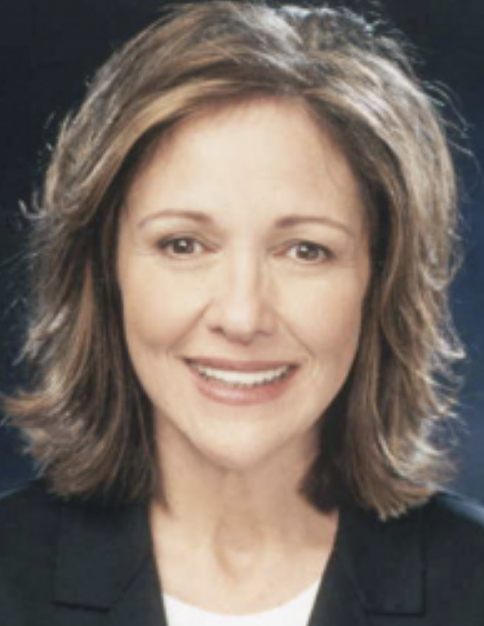
On this date in 1949, multi-talented author, popular science promoter, writer/producer and activist Ann Druyan was born in Queens, N.Y. Druyan was the longtime collaborator and spouse of astronomer Carl Sagan (until his death in 1996). The two science enthusiasts had two children together and co-wrote the best-sellers Comet (1985) and Shadows of Forgotten Ancestors (1992).
Sagan credited her as a contributor to his books Contact (1997), Pale Blue Dot (1997), The Demon-Haunted World: Science as a Candle in the Dark (1997) and Billions and Billions (posthumous, 1998), in which Druyan wrote the poignant epilogue addressing Sagan’s nonbelief and death.
Druyan co-wrote the Emmy and Peabody Award-winning television series “Cosmos,” viewed by half a billion in over 60 countries. She also wrote and produced the two updated “Cosmos” series: “A Spacetime Odyssey” hosted by Neil DeGrasse Tyson that aired on Fox and ran on The National Geographic Channel in 2014 and won multiple awards, including a Peabody; and “Cosmos: Possible Worlds,” also hosted by Tyson that debuted in 2019 on the same channels.
She served as creative director of the NASA Voyager Interstellar Record Project affixed to the Voyager I and II spacecrafts. Her articles have appeared in numerous publications, including The New York Times Sunday Magazine, Reader’s Digest, Parade, Discover and The Washington Post. She co-produced and co-created the hit film “Contact,” which starred an atheist-scientist heroine played by freethinker Jodie Foster.
Druyan produced and wrote the screenplay for “Comet,” a 3-D IMAX motion picture. Druyan, who has organized for peace and against nuclear testing, is founder and CEO of Cosmos Studios, served as secretary of the Federation of American Scientists, on the board of the National Organization for the Reform of Marijuana Laws and directed the Children’s Health Fund. She was named Harvard’s Humanist of the Year in 2017.
Druyan has always made time to advocate for science and speak out against the illusion of religion. “By disobeying god, we escape from his totalitarian prison where you cannot ask any questions, where you must never question authority. We become our human selves,” Druyan wrote in The Skeptical Inquirer (November/December 2003).
She received FFRF’s 1997 Freethought Heroine Award. She told Freethought Radio in October 2006: “The Universe revealed by science is one of far more awesome grandeur than any religion has ever posited.”
“I don’t have any faith, but I have a lot of hope, and I have a lot of dreams of what we could do with our intelligence if we had the will and the leadership and the understanding of how we could take all of our intelligence and our resources and create a world for our kids that is hopeful.”
— The Skeptical Inquirer, "Ann Druyan Talks About Science, Religion, Wonder, Awe ... and Carl Sagan" (November/December 2003)
Wafa Sultan
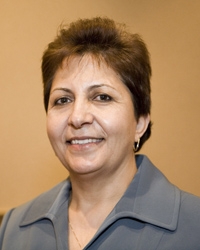
On this date in 1958, Wafa Sultan was born in Banias, Syria. Sultan received her degree in medicine at the University of Aleppo, where she says she lost her faith in Islam after seeing one of her professors gunned down by the Muslim Brotherhood. In 1989 she and her husband emigrated to Los Angeles with their children.
Sultan has written essays critical of Islam, some published on the reform website Annaqed (The Critic). In 2005, Sultan gained notoriety for her appearance on Al Jazeera debating a Muslim cleric and asking, “Why does a young Muslim man, in the prime of life, with a full life ahead, go and blow himself up? In our countries, religion is the sole source of education and is the only spring from which that terrorist drank until his thirst was quenched.”
In 2009 she published her first book in English, A God Who Hates: The Courageous Woman Who Inflamed the Muslim World Speaks Out Against the Evils of Islam. She describes herself as a cultural Muslim. In 2006 she received FFRF’s Freethought Heroine Award.
“I receive too many emails from women in the Islamic world, telling me: ‘Go ahead, we are behind you,’ but unfortunately they’re afraid for their lives.”
— Sultan, speaking to FFRF's 2006 national convention
Elbert Hubbard
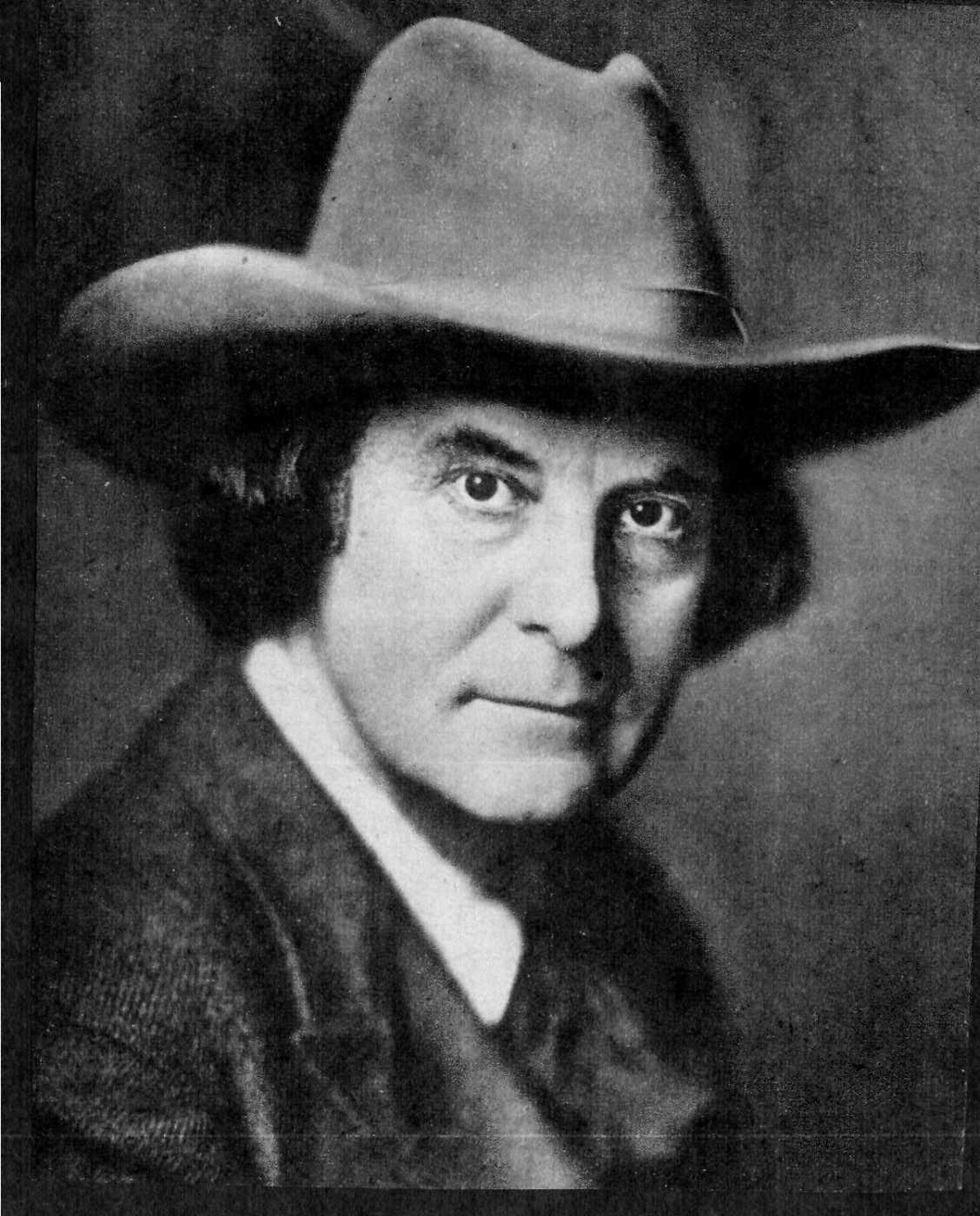
On this date in 1874, Elbert Hubbard was born in Bloomington, Illinois, the son of a country doctor. During his youth, the family moved to Buffalo, New York. Hubbard joined one of the first successful mail order businesses, JP Larkin of Buffalo, selling his interest in it at 36. After a trip abroad, he established Roycroft Printing Shop in East Aurora, New York, producing what are considered some of the finest handmade books of the 19th century, serving clients such as Henry Ford, Teddy Roosevelt and Queen Victoria.
Hubbard published several periodicals, including the monthly The Philistine (which printed his famous 1899 essay “A Message to Garcia”) and The Fra, also a monthly, with circulations that grew into the tens of thousands.
Hubbard, a firm freethinker, wrote eight books himself and produced a series, Little Journeys to the Homes of the Great (1895-1909), including one little book about Robert Green Ingersoll, the 19th century’s most well-known “infidel.” Gradually, Hubbard created a Roycroft community, including factory, blacksmith shop, farms, bank and an inn that is still standing. East Aurora today houses many of his artifacts in an Elbert Hubbard Museum. Hubbard became a popular lecturer and was hired as a columnist by Hearst Newspapers. He and his freethinking wife Alice Hubbard went down on the Lusitania to a watery grave on May 7, 1915. (D. 1915)
“When you once attribute effects to the will of a personal God, you have let in a lot of little gods and evils — then sprites, fairies, dryads, naiads, witches, ghosts and goblins, for your imagination is reeling, riotous, drunk, afloat on the flotsam of superstition. What you know then doesn’t count. You just believe, and the more you believe the more do you plume yourself that fear and faith are superior to science and seeing."
— Elbert Hubbard section, "An American Bible," edited by Alice Hubbard (1912)
Ira Cardiff
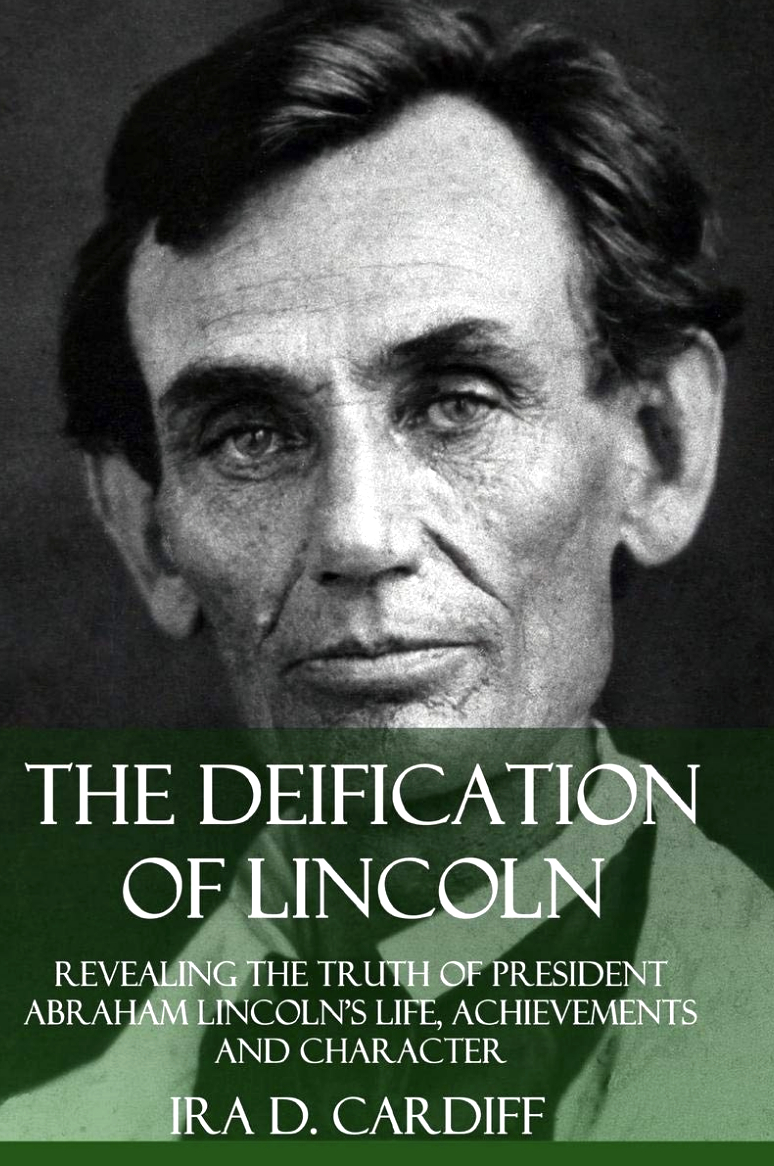
On this date in 1873, botanist and humanist author Ira Detrich Cardiff was born. He directed the agriculture experimental station from 1914-17 at Washington State University, where he also headed the botany and plant physiology department. He later founded the Washington Dehydrated Foods Company in Yakima. In addition to academic publications, Cardiff wrote freethought articles, pamphlets and books, including The Deification of Lincoln (1943), What Great Men Think of Religion (1945), which focused on skeptics, and, as editor, The Wisdom of George Santayana. (D. 1964)
"What would Christ do about syphilis? Well, what should he do? Christ, being possessed of miraculous powers, why does he not obliterate syphilis from the face of the earth? Does Spirochaeta pallida, the organism causing syphilis, perform any useful function in the economy of nature? If not, why not obliterate it? Who is better equipped to do this than Jesus Christ?"
— Cardiff, "If Christ Came to New York," (undated pamphlet published in The Truth Seeker, c. 1930s)
Dan Barker
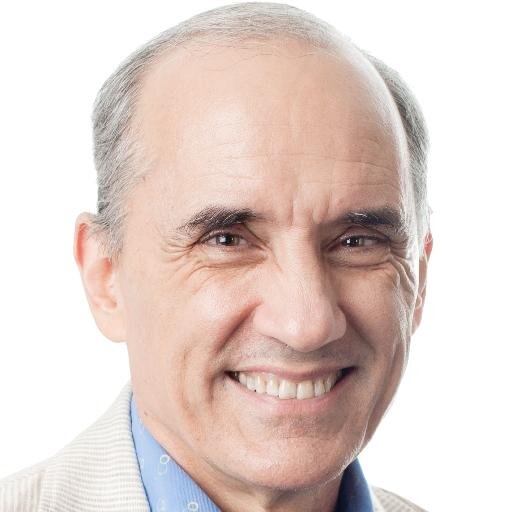
On this date in 1949, Dan Barker was born in California. His father, Norman Barker, a professional trombonist, played with Hoagy Carmichael and appeared in a cameo with Judy Garland in the movie “Easter Parade.” (See Norman with Garland starting at 12 seconds in this video clip.) More is here on his family background.
His mother, Patricia, was a talented amateur singer and the family often used music in their volunteer evangelism. Barker, who became a piano player and songwriter, worked as a volunteer missionary as a teenager, going to Mexico with youth groups and becoming fluent in Spanish.
He attended Asuza Pacific College, majoring in religion. Ordained by a Christian congregation, he worked as an assistant minister in several churches but mainly freelanced with a musical ministry, also writing secular children’s music. Many of his songs and two Christian children’s musicals were produced by Manna Music and other Christian publishing houses.
In his early 30s he started a course of reading in science, liberal theology and rationalism that led to “an intense inner conflict.” Finally, “I just lost faith in faith.” In 1983, he publicly left religion. He joined the staff of the Freedom From Religion Foundation in 1987, where he has served as public relations director, becoming co-president with his wife Annie Laurie Gaylor in 2004. FFRF published his book Losing Faith in Faith (1992), as well as three freethought/humanist books for children, including Just Pretend, and more than 70 freethought songs, including “You Can’t Win with Original Sin,” “None of the Above” and “Nothing Fails Like Prayer.” He collaborated with lyricist Charles Strouse on the song, “Poor Little Me.”
Barker has recorded his songs and other traditional and contemporary freethought music on three CDs for FFRF: “Friendly Neighborhood Atheist,” “Beware of Dogma” and “Adrift on a Star.” He also freelances as a busy keyboardist and piano player in Madison, Wis., performing jazz and the Great American Songbook, much of which he has discovered was written by secular songwriters.
He has participated in more than 100 public debates with Christian clergy, religious scholars and even an imam or two. His most recent books include Godless: How an Evangelical Preacher Became One of America’s Leading Atheists, foreword by Richard Dawkins (2008); The Good Atheist: Living a Purpose-Filled Life Without God, foreword by Julia Sweeney (2011); Life Driven Purpose: How an Atheist Finds Meaning, foreword by Daniel C. Dennett (2015); GOD: The Most Unpleasant Character in All Fiction, foreword by Dawkins (2016); Free Will Explained: How Science and Philosophy Converge to Create a Beautiful Illusion (2018); and Mere Morality (2018). Barker’s books are available here.
He has appeared on many national television talk shows, including “The Daily Show,” “The Phil Donahue Show,” “Oprah,” national Fox TV, ABC’s “Good Morning America,” “Religion & Ethics News Weekly” and “60 Minutes Australia.” He has co-hosted FFRF’s radio and TV shows and is a frequent speaker on college campuses and freethought conferences. He has four children from his first marriage and a daughter with Gaylor.
"I threw out the bath water, and there was no baby there."
— Dan Barker, "Losing Faith in Faith" (1992)
Paul Broca
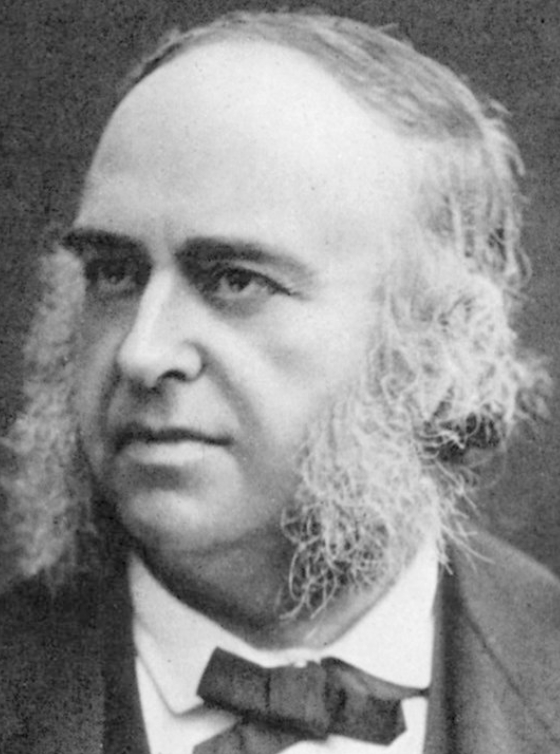
On this date in 1824, Pierre Paul Broca was born in Sainte-Foy-la-Grande, France. He began attending medical school when he was only 17, graduated at 20 and later earned degrees in mathematics, literature and physics. Broca went on to become a professor of surgical pathology at the University of Paris and was an accomplished anatomist who advanced understanding of speech production in the brain. His most important achievement was discovering Broca’s area, a region of the brain responsible for speech production.
His work was also influential in cancer pathology and treatment of brain aneurysms. Broca founded the Anthropological Society of Paris in 1859, and his findings in anthropology often contradicted biblical teachings. Broca himself died, ironically, of a brain aneurysm. His brain was preserved after his death, becoming the inspiration for Carl Sagan’s 1974 book Broca’s Brain.
According to The End of the Soul by Jennifer Michael Hecht (2003), Broca thought that the more educated humans were, the less religious they would become. Broca also firmly supported natural selection: “Far from blushing in shame for my species because of its genealogy and parentage, I will be proud of all that evolution has accomplished.” (D. 1880)
"[Religion is] nothing more than a type of submission to authority."
— Broca, "Bulletins de la Société d'anthropologie de Paris"
Benjamin Underwood
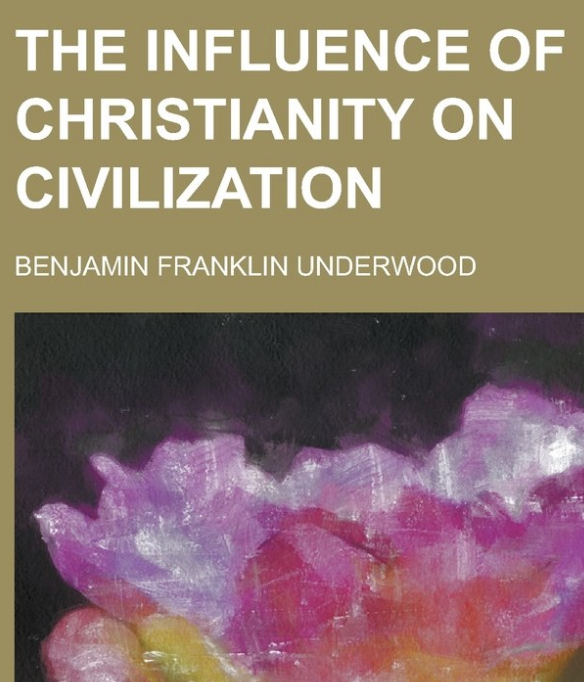
On this date in 1839, Benjamin Franklin Underwood was born in New York City, the second of seven children. Largely self-educated, he served in the Civil War and was imprisoned at Richmond after being wounded in the right leg. After being released through a prisoner exchange program, Underwood reinlisted and served through the war, receiving a commendation for bravery in action. After working as a reporter, lecturer and author, Underwood became a noted promoter of the theory of evolution.
He was appointed co-editor, with William J. Potter, of The Index in 1881, a weekly newspaper founded by a Unitarian. In 1887 he founded The Open Court in Chicago, a journal which published the writings of many freethinkers. Underwood wrote, lectured and debated as a major 19th-century advocate for the freethought movement. His books include The Influence of Christianity on Civilization (1871) and The Crimes and Cruelties of Christianity (1877). Underwood chaired the Congress of Evolution at the World’s Fair in Chicago in 1893. He was a supporter of feminism. His wife, Sara Underwood, published Heroines of Freethought in 1876. (D. 1914)
“There is no argument worthy of the name that will justify the union of the Christian religion with the State. Every consideration of justice and equality forbids it. Every argument in favor of free Republican institutions is equally an argument in favor of a complete divorce of the State from the Church."
— Underwood, "The Practical Separation of Church & State," an address to the 1876 Centennial Congress of Liberals
Josiah P. Mendum
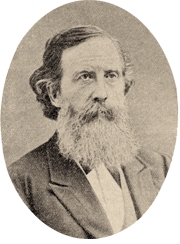
On this date in 1811, Josiah P. Mendum was born in Kennebunk, Maine. In 1844, Mendum took over as editor and proprietor of the Boston Investigator, the first U.S. rationalist news publication, after Abner Kneeland retired. Under Mendum’s businesslike management, the newspaper became prosperous and influential. Mendum also republished books by Voltaire, D’Holbach, Volney and Paine. He lobbied hard for the building of a hall to memorialize Thomas Paine in 1870. By 1874, the Paine Memorial Hall was opened in Boston.
Mendum spent 40 years as rationalist advocate. He and Horace Seaver as co-editors were succeeded by Mendum’s son, Ernest Mendum, and by Lemuel K. Washburn. When J.P. Mendum died, a memorial was fittingly held at Paine Hall. Mendum was lauded for helping to turn “the strait-laced Boston of sixty years ago [into] the enlightened Hub of today … to ‘destroy bigotry and uproot the evils of superstition.’ ” (Boston Globe, Feb. 3, 1891) (D. 1891)
Ernie Chambers
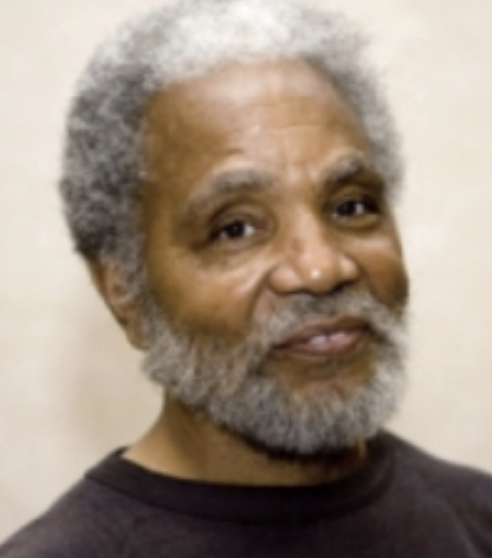
On this date in 1937, politician Ernest Chambers, known as “the Maverick of Omaha” and “defender of the downtrodden,” was born in Omaha, Neb. Chambers understood early on the power of protest and of grassroots organizing, standing up for civil rights as a youth and emerging as a leader of African-American youths in Omaha. He graduated from Creighton University School of Law and was first elected to the unicameral legislature as a state senator in 1970, the only black member of the legislature in an overwhelmingly white, ultraconservative state.
Chambers became known for defending the rights of women, gays and lesbians and people of color. He challenged legislative prayers in the 1983 Supreme Court case Marsh v. Chambers, and although the court ruled against him, Chambers was successful in subsequently persuading the Senate to drop payment for prayers.
Rita Swan of Children’s Healthcare is a Legal Duty (CHILD) said in 2005, “Nebraska is the only state in the country that has never had a religious exemption to child neglect in either the juvenile or criminal codes and that distinction is due to Ernie’s forceful opposition and vigilance. Nebraska is one of four states without a religious exemption to metabolic screening of newborns and that again is because of Ernie’s leadership.” CHILD presented Chambers with its child advocacy service award for successfully arguing that “no parent should have a religious right to deprive a child of necessary health care” and keeping a religious exemption to health care from being enacted in that state.
Chambers cleverly filed a lawsuit in 2007 (Chambers v. God) to make a point about frivolous lawsuits. Chambers, who identifies as nonreligious without using a label, sought a permanent injunction against the defendant for making terroristic threats against him and his constituents, of inspiring fear and causing “widespread death, destruction and terrorization of millions upon millions of the Earth’s inhabitants.” In October 2008 the judge threw out his lawsuit, whimsically ruling that the defendant wasn’t properly served due to his unlisted home address.
Chambers, accepting FFRF’s Hero of the First Amendment Award in 2005, commented, “What I would do, from time to time, is mock, taunt, and ridicule my colleagues for injecting religion and Jesus into the legislature.” His political opponents, in a successful effort to finally unseat him from the Senate when they could not do so electorally, passed a law in 2000 establishing term limits so he was unable to seek reelection in 2008. He was reelected in 2012 and 2016 to four-year terms. In 2015, FFRF awarded Chambers its Emperor Has No Clothes Award.
“As an elected official, I know the difference between theology and politics. My interest is in legislation, not salvation.”
— Chambers, Hero of the First Amendment acceptance speech (Nov. 12, 2005)
Fred Edwords
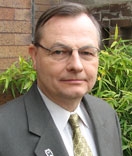
On this date in 1948, humanist leader Fred Edwords was born in San Diego. He has dedicated his life to advocating for the atheist, agnostic, secular, humanist and freethinking communities. In the late 1960s he attended San Diego City College and the Bill Wade School of Radio and Television, going on to work as a radio newscaster and then as an underground filmmaker. Edwords directed the United Coalition of Reason, which was founded in 2009 and works to promote the community of reason and separation of church and state.
Edwords worked for the American Humanist Association for over 20 years, serving as executive director and then as editor of The Humanist, the organization’s magazine. He was president of Camp Quest, a children’s summer camp that promotes reason, critical thinking and other ideas embraced by the humanist and secular movements. The camp’s motto is, “Camp Quest. It’s beyond belief!” He and Mary Caroll Murchison married in 1980 and have two daughters.
PHOTO: American Humanist Association photo under CC 3.0.
“Much of human progress has been in defiance of religion or of the apparent natural order. The defiance of religious and secular authority has led to democracy, human rights, and the protection of the environment. Humanists make no apologies for this. Humanists twist no biblical doctrine to justify such actions.”
— Edwords, "What is Humanism?" (1989, retrieved from the American Humanist Association website)
E. Haldeman-Julius
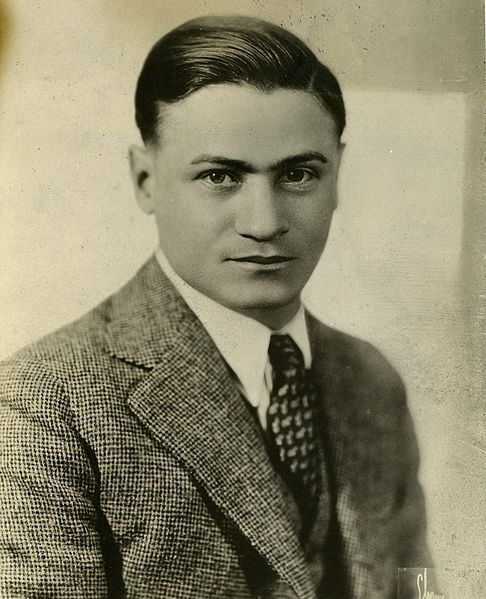
On this date in 1889, Emanuel Julius, later known as E. Haldeman-Julius, was born in Philadelphia, the son of Russian-Jewish immigrants. An early socialist, he educated himself at party headquarters, reading tracts on freethought, philosophy and economics. In 1906 he left home for good, heading for New York City. His self-education continued when a sympathetic librarian at a girls’ school in Tarrytown, where he had found work, introduced him to visiting dignitary Mark Twain. Emanuel’s first attributed article, “Mark Twain: Radical,” was published in a socialist periodical in 1910.
He worked for a variety of socialist newspapers, including New York Evening Call, Coming Nation, published in Girard, Kansas, the Milwaukee Leader, and the Chicago Evening World. He became editor and briefly acquired the Western Comrade, published in Los Angeles. He met his wife-to-be, Marcet Haldeman, an actress and heiress, in New York City and followed her home to Girard, Kansas. There he worked for Appeal to Reason, the largest socialist weekly in the country. They married in 1916 and legally combined their surnames at the urging of Marcet’s aunt, Jane Addams of Hull House fame. They had two daughters and a son. Haldeman-Julius, with his wife’s help, purchased Appeal to Reason and its publishing plant in 1918.
By the following year he had initiated his People’s Pocket Series — inexpensive paperbacks later renamed Little Blue Books, to match their appearance. Haldeman-Julius reprinted classics, socialist, radical and freethought literature. Most of the paperbacks contained a bonus page of his trademark nonreligious views. He also published a variety of periodicals, including American Freeman. In 1925 he launched the Big Blue Books series, publishing such notable authors as Bertrand Russell and Joseph McCabe.
Haldeman-Julius revolutionized the publishing industry, bringing avant-garde authors to the masses. His radical politics, including attacks against President Herbert Hoover, brought him to the attention of the FBI, which he in turn pilloried in print. He further alienated the status quo by publishing McCabe’s allegations of Vatican collaboration with the Axis during World War II. J. Edgar Hoover’s 20-year investigation of the publisher resulted in a verdict of tax evasion in 1951. Haldeman-Julius appealed the verdict but was found drowned in his swimming pool later that year. (D. 1951)
"It is natural that people should differ most, and most violently, about the unknowable. … There is all the room in the world for divergence of opinion about something that, so far as we can realistically perceive, does not exist."
— Haldeman-Julius, "The Unknowable," The Militant Atheist
Anthony Collins
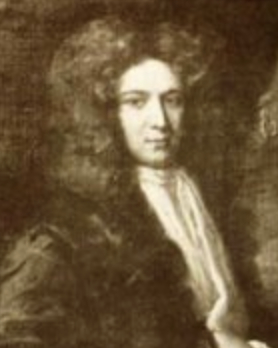
On this date in 1676, Anthony Collins, called the “Goliath of freethinking” by Thomas Huxley, was born in Heston, England. Collins studied at Eton and King’s College, Cambridge, and was a close friend of John Locke. He moved in a circle of leading freethinkers, including John Toland and Matthew Tindal. “An Essay Concerning the Use of Reason” was published (anonymously) in 1707, along with a letter addressing immateriality and the soul. A debate in 1708 with Samuel Clarke resulted in the publication of four pamphlets by each participant.
In 1710 Collins wrote “Vindication of the Divine Attributes, in Some Remarks on Archbishop (King’s) Sermon.” The 1713 book, A Discourse of Freethinking, was his most influential work, helping to popularize the term “freethought.” Philosophical Inquiry Concerning Human Liberty, published in 1717, won the praise of Voltaire. The Grounds and Reasons of the Christian Religion (1724) rejected the claim that Jesus fulfilled Old Testament prophecies. Although Collins left England for a time when debate heated up after the publication of A Discourse of Freethinking, the courteous scholar was taken most seriously by leading religionists and Anglicans.
Grounds, with its serious arguments against prophecy and its advancement of the scientific principle, provoked more than 30 books and essays by religionists trying to counter it. Collins is best described as a deist and materialist who opposed “priestcraft,” although he did differentiate between good and bad priests. He willed his unpublished manuscripts to Pierre Desmaizeaux, who sold them after Collins’ death in 1729 to his widow. It appears that she then destroyed them. Desmaizeaux quickly regretted his decision but it was too late. (D. 1729)
"The Use of the Understanding, in endeavouring to find out the Meaning of any Proposition whatsoever, in considering the nature and Evidence for or against it, and in judging of it according to the seeming Force or Weakness of the Evidence."
— Collins' definition of freethought, "Discourse of Freethinking" (1713)
Samuel Porter Putnam
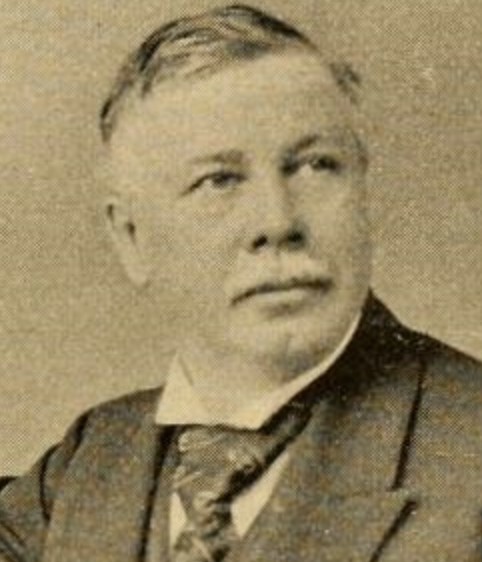
On this date in 1838, Samuel Porter Putnam, the son of a Congregationalist minister, was born in New Hampshire. He became a student at Dartmouth in 1858 and enlisted as a private in the Civil War, where, after two years of service he was promoted to captain. He became a Congregationalist minister in 1868 after three years at the Chicago Theological Seminary. Three years later he broke with that denomination and joined the Unitarians. After serving in various congregations, he then “gave up all relations whatsoever with the Christian religion, and became an open and avowed Freethinker,” as he recorded in his 1894 opus Four Hundred Years of Freethought.
During the Rutherford B. Hayes administration he was appointed to the Civil Service. He left that work in 1887 to head the American Secular Union. He was elected president of the California State Liberal Union in 1891 and the Freethought Federation of America in 1892. He noted that he visited all but four of the states and territories in his work for freethought, traveling more than 100,000 miles. His other writings include: Prometheus, Gottlieb: His Life, Golden Throne, Waifs and Wanderings, Ingersoll and Jesus, Why Don’t He Lend a Hand? Adami and Heva, The New God, The Problem of the Universe, My Religious Experience, Religion a Curse, Religion a Disease, Religion a Life, and Pen Pictures of the World’s Fair.
Putnam’s tragic death created a mild scandal. He and a young lecturer colleague, May Collins, had been touring in Boston. They returned after dinner to the home where Collins was staying and were found dead the next morning in her room, victims of leaking gas. Although they were fully clothed, and there was no “evidence of impropriety,” the religious press attacked Putnam, disclosing that he was a divorced man with two children. (D. 1896)
"The last superstition of the human mind is the superstition that religion in itself is a good thing, though it might be free from dogma. I believe, however, that the religious feeling, as feeling, is wrong, and the civilized man will have nothing to do with it”
— Putnam, "My Religious Experience" (1891)
Vern Bullough
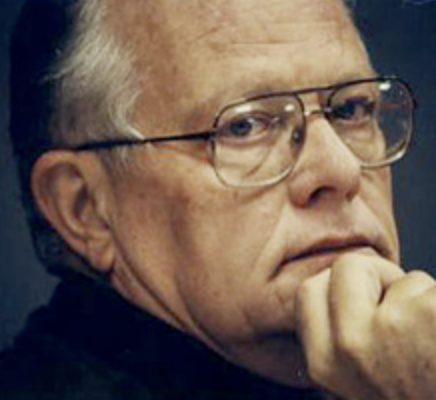
On this date in 1928, Vern Leroy Bullough was born in Salt Lake City, Utah. He earned a B.A. in history and languages from the University of Utah in 1951, an M.A. in history from the University of Chicago in 1951, a Ph.D. in the history of medicine and science from the University of Chicago in 1954 and a B.S. in nursing from California State University-Long Beach in 1981. Bullough was a sexologist and historian, as well as a professor of nursing, sociology and history. He was Dean of the Faculty of Natural and Social Sciences at State University of New York at Buffalo and was one of the founders of the Center for Sex Research at Cal State.
Bullough received numerous awards for his work, including the prestigious Kinsey Award in 1995. He was a strong supporter of civil liberties who worked with the ACLU and the NAACP. Bullough has published and edited numerous books, many co-written with his first wife, Bonnie Uckerman Bullough, who was also a nurse and sexologist. Their collaborations include The Subordinate Sex: A History of Attitudes Toward Women (1973) and Sexual Attitudes: Myths and Realities (1995).
Bullough was co-president of the International Humanist and Ethical Union from 1994-97 and its vice president in 1997-98. He received a Distinguished Humanist Service Award from the IHEU in 1992. Bullough was an honorary associate of the Indian Rationalist Association, and also worked with the Humanist Academy. He wrote the 1994 essay “Science, Humanism, and the New Enlightenment.”
He had married Bonnie, his high school sweetheart, in 1947. They had two sons (David, 1954, and James, 1956). They expanded their family through the adoption of Steven (1958), Susan (1961) and Michael (1966). James died tragically when hit by a car in 1967 in Egypt during Bonnie’s year as a Fulbright Scholar. She died in 1996. Bullough later married Gwen Baker. He died of cancer at age 77 in Westlake Village, Calif. (D. 2006)
PHOTO: Oviatt Library, CSU-Northridge
"[Vern Bullough] will be sorely missed as one of the leading secular humanists in North America and the world."
— Paul Kurtz, founder of the Center for Inquiry and Council for Secular Humanism, quoted on the IHEU website.
Lucy Colman
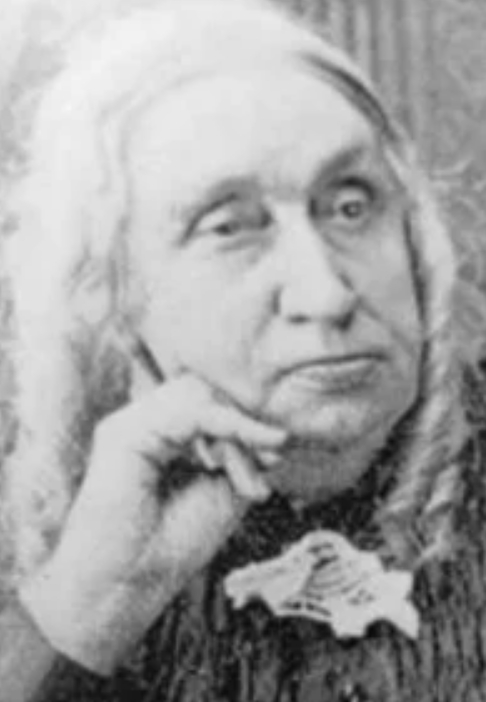
On this date in 1817, abolitionist infidel Lucy N. Colman (née Danforth) was born in New England, a descendant of John and Priscilla Alden through her mother’s side. She was twice widowed. When her second husband was killed in a work-related accident, she was left to support her 7-year-old daughter. With workplace door after door slammed in her face because of her sex, she discovered “woman’s wrongs.” She wrote, “I had given up the church, more because of its complicity with slavery than from a full understanding of the foolishness of its creeds.”
She turned to teaching in Rochester, earning less than half what a male teacher made. Susan B. Anthony discovered her and invited her to address a teachers’ association. She created a sensation by urging the abolition of corporal punishment in schools (see quote). She became an abolitionist lecturer, sacrificing security, comfort and wages to work against slavery. Often mobbed, she found that the racist ringleaders were nearly always clergymen. Frederick Douglass conducted the funeral for her daughter Gertrude, who died suddenly at college.
Colman later taught at a “colored school” in Georgetown and held many philanthropic positions. She wrote regular columns for the leading freethought publication, The Truth Seeker. She died at age 88 in Syracuse, N.Y. (D. 1906)
"If your Bible is an argument for the degradation of woman, and the abuse by whipping of little children, I advise you to put it away, and use your common sense instead."
— Lucy Colman, paper delivered at New York teacher's convention (The Truth Seeker, March 5, 1887)
Ellery Schempp
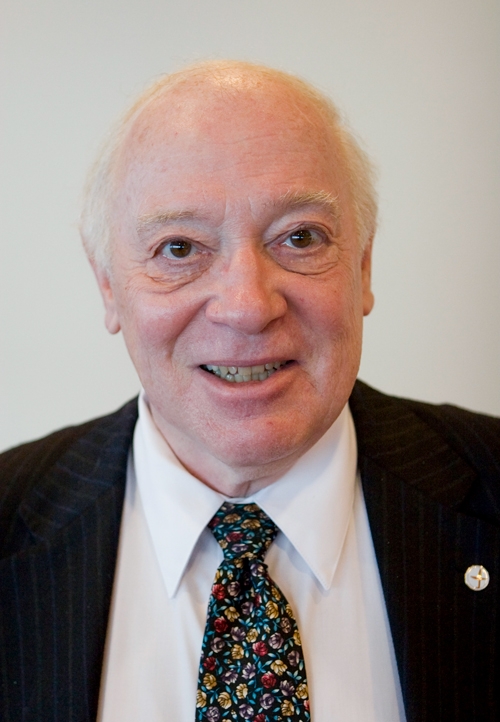
On this date in 1940, Ellery Schempp was born in Philadelphia. He started protesting morning devotions as a 16-year-old junior in Abington Senior High in Pennsylvania in 1956. State law then required 10 bible verses to be read in every classroom at the beginning of each school day, followed by students standing to recite the Lord’s Prayer and flag salute. Twenty to 30 states had similar laws. He protested by bringing a copy of the Quran to school to show that the bible was not unique and read that silently instead of standing for the Lord’s Prayer. He ended up in the principal’s office.
Schempp then wrote a letter to the ACLU asking for help. The ACLU filed a lawsuit. After he graduated in 1958 he was no longer a plaintiff, but his family, including his father Ed Schempp, his mother Sydney, and younger siblings, carried on the celebrated case, Abington School District v. Schempp, which resulted in a landmark 8-1 decision in 1963 declaring devotional bible reading and prayer rituals in schools unconstitutional.
“We received about 5,000 letters, roughly a third supporting us, a third opposing in reasonable terms, a third hateful and vituperative,” Schempp said. The decision has stood as a bulwark against the coercive proselytization of schoolchildren and has stood the test of time. Steven Solomon at New York University documented the landmark case in the book Ellery’s Protest, published by the University of Michigan Press (2007).
Schempp attended Tufts University, where he graduated cum laude in physics and geology. He earned a Ph.D. at Brown in physics. He worked on fiber optics research, joined the staff of Lawrence Berkeley National Laboratory in 1980 and worked on the development of MRI systems. A member of the American Physical Society, he has traveled widely, including to Greenland, the Canadian Arctic, Antarctica, the Alps, the Himalayas, the Sierras and New Zealand. A Lifetime Member of the Freedom From Religion Foundation, he was named a Champion of the First Amendment in 2007.
“The Supreme Court’s recent decisions are all about eclipsing the Etablishment Clause in favor of the Free Exercise Clause. I’ve gotten to the point where I say I don’t believe in freedom of religion anymore. It’s become so ridiculous. People today are saying, ‘I have a very sincere belief, I don’t believe in red lights, and where is my freedom?’ ” (Washington Post interview, June 23, 2023) Schempp added, “It’s getting worse because of Donald Trump and MAGA types, but it’s been brewing for a long time.”
"Public prayer is not intended to promote religious values, but to enhance the authority of some churches and some political views over others. Similarly with the posting of the Ten Commandments. It is about power, not about religion. … And the Constitution clearly intends that there should be freedom from religion."
— Schempp, Champion of the First Amendment acceptance speech to FFRF (Oct. 13, 2007)
Robert Taylor
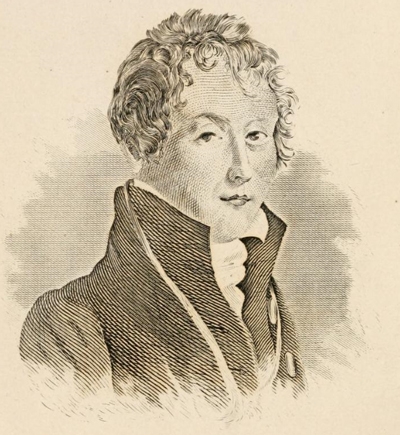
On this date in 1784, Robert Taylor (later dubbed “the Devil’s Chaplain”) was born in England and became a member of the College of Surgeons in 1807. Undergoing a religious conversion, he was ordained an Anglican priest in 1813. He lost his faith about five years later when a parishioner exposed him to rationalist writings. Resigning with a splash, he took out an advertisement seeking employment, which spelled out his loss of religion. Bowing to his mother’s pleadings, he briefly returned to the ministry but was expelled for giving deistic sermons.
In 1826 Taylor opened a deistic chapel. He flouted church authority by wearing his episcopal garments when giving his deistic lectures. That year he was sentenced to a year in jail for one of his sermons. He and oft-jailed freethought publisher Richard Carlile paired up and distributed a handbill inviting Cambridge students to hear them “present their compliments as Infidel missionaries, to … most respectfully and earnestly invite discussion on the merits of the Christian religion.” This made a deep impression on student Charles Darwin, who, in later delaying the release of his theory of evolution, took into account their treatment at the hands of Cambridge authorities.
Taylor and Carlile were thrown out of town and authorities even revoked the license of the landlord who had rented to them. After writing a pamphlet called “The Devil’s Pulpit” (1831), an energetic denunciation of New Testament dogma in which Taylor complained of “this tax-burthened and priest-ridden country,” he was nicknamed “The Devil’s Chaplain.” In 1831, he was again convicted of blasphemy, was sentenced to two years in prison and was fined £200. (D. 1844)
"[Christianity] is a system of the grossest hypocrisy, a fashionable villainy, a licensed swindle, cheat, and trick.”
“Go to church and chapel, you fools — listen to the parson, and shut your eyes, and open your mouths, and see what God will send you.”
— Taylor, "The Devil's Pulpit" (1831)
Charles Southwell
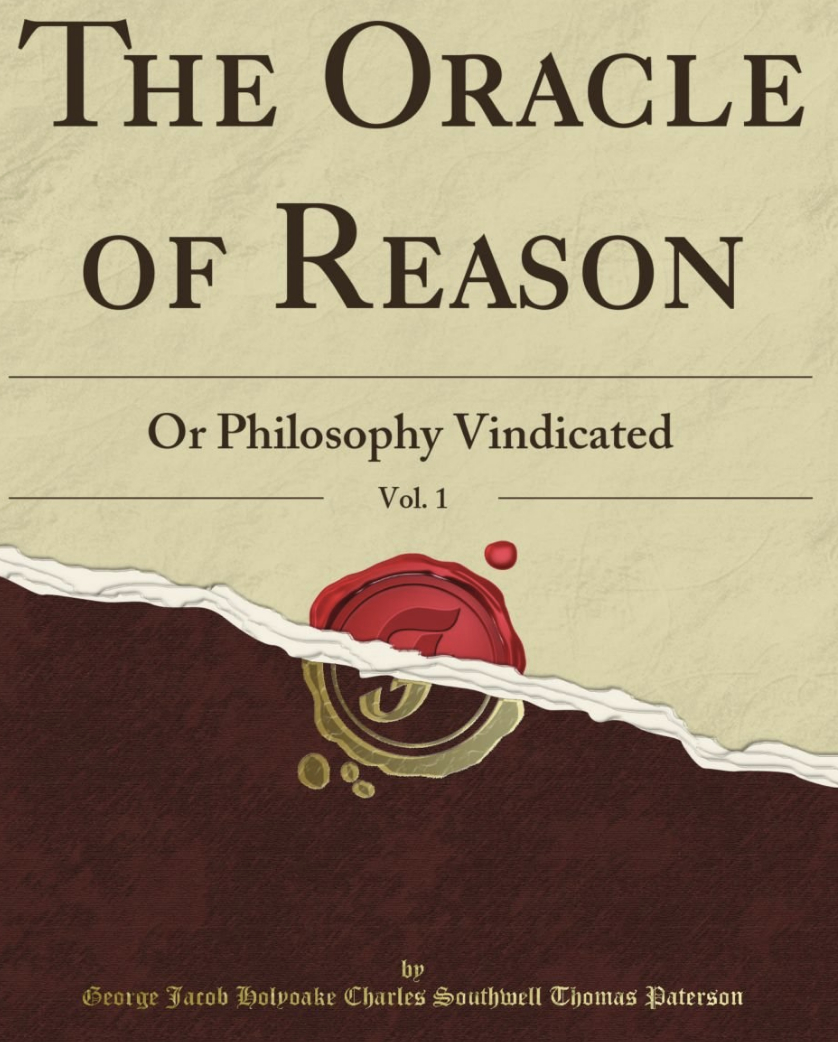
On this date in 1814, Charles Southwell was born in London. Southwell became an atheist as a teenager after reading Sermons by the Calvinist Timothy Dwight. After serving in the British Foreign Legion in Spain during the Carlist War, Southwell became a popular and prolific freethought lecturer in London. He opened a radical bookstore and helped found the atheist periodical The Oracle of Reason (1841-43), which often published fiercely anti-Christian material. It was among the first avowedly atheist publications in England. Southwell and several later editors were imprisoned for blasphemy.
“The … BIBLE has been for ages the idol of all sorts of blockheads, the glory of knaves, and the disgust of wise men. It is a history of lust, sodomies, wholesale slaughtering, and horrible depravity; that the vilest parts of all other histories, collected in one monstrous book, could scarcely parallel,” Southwell wrote in The Oracle of Reason. (Politics 1790-1900, Edward Royle, 1976) Southwell boldly asserted in 1842 that “The world could not have been designed by one being, infinitely wise, infinitely good, and infinitely powerful.”
Southwell lived in New Zealand from 1856 until his death in 1860, where he was influential to the freethought movement there. The New Zealand Association of Rationalists and Humanists named its Charles Southwell Award after him. Southwell wrote An Apology for Atheism (1846), Superstition Unveiled (1854) and The Confessions of a Freethinker and founded the newspapers The Investigator, The Lancashire Beacon and The Auckland Examiner. (D. 1860)
"Superstition is the tyranny of tyrannies, and its priests the tyrants of tyrants."
— Southwell, "The Oracle of Reason" (1842)
Robert Green Ingersoll
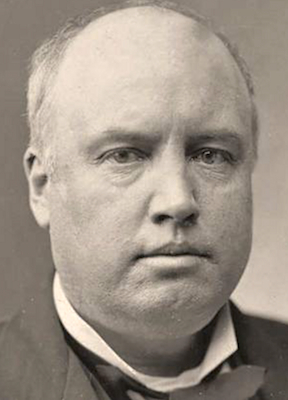
On this date in 1833, “The Great Agnostic” Robert Green Ingersoll, who became the best known U.S. advocate of freethought in the 19th century, was born in Dresden, N.Y. The son of an impoverished itinerant pastor, he later recalled his formative church experiences, “The minister asked us if we knew that we all deserved to go to hell, and we all answered ‘yes.’ Then we were asked if we would be willing to go to hell if it was God’s will, and every little liar shouted ‘Yes!’ ”
He became an attorney by apprenticeship and a colonel in the Civil War, fighting in the Battle of Shiloh. In 1867, he was appointed Illinois’ first attorney general. His political career was cut short by his refusal to halt his controversial lectures, but he achieved national political fame for his thrilling nomination speech for James G. Blaine for president at the GOP national convention in 1876.
Ingersoll was good friends with three U.S. presidents and was admired by leading progressives for sentiments like this: “Who can overestimate the progress of the world if all the money wasted in superstition could be used to enlighten, elevate and civilize mankind?” (Some Mistakes of Moses, 1879.)
Ingersoll traveled the continent for 30 years, speaking to capacity audiences, once attracting 50,000 people to a lecture in Chicago. His repertoire included three- to four-hour lectures, with the largest crowds turned out to hear him denounce the bible and religion. Ingersoll’s speaking fees ranged as high as $7,000 in an era of low wages and no income tax. In 1862 he married Eva Amelia Parker, a rationalist whom he deemed a “Woman Without Superstition” in dedicating his first freethought book to her. They raised two freethinking daughters, Eva Ingersoll-Brown and Maud Ingersoll.
He initially settled in Peoria, Illinois, then in Washington, D.C., where he successfully defended falsely accused men in the “Star Route” scandal involving U.S. mail routes. The family later relocated to New York. Religious rumors against Ingersoll abounded. One had it that his son was a drunkard who more than once had to be carried away from the table. Ingersoll wrote, “It is not true that intoxicating beverages are served at my table. It is not true that my son ever was drunk. It is not true that he had to be carried away from the table. Besides, I have no son!”
The 12-volume Dresden Edition of his lectures, poetry and interviews was collected after his death and has been reprinted many times. He has been credited for reviving Thomas Paine‘s reputation in American intellectual history, which had decreased after publication of The Age of Reason in 1794-95. Ingersoll died at age 65 from congestive heart failure in Dobbs Ferry, N.Y. His ashes are interred in Arlington National Cemetery. (D. 1899)
"All religions are inconsistent with mental freedom. Shakespeare is my bible, Burns my hymn-book."
"I do not borrow ideas. I have a factory of my own."
"I do not believe in putting out the sun to keep weeds from growing."
"With soap, baptism is a good thing."
— "American Infidel: Robert G. Ingersoll, a Biography" by Orvin Larson (1993)
Matthew Tindal
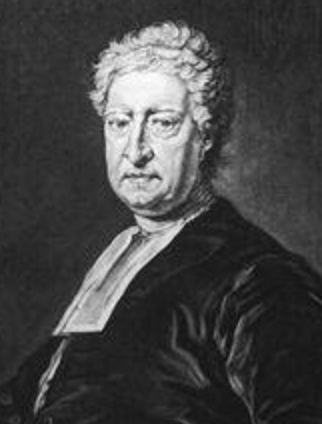
On this date c. 1653-57, deist author Matthew Tindal was born in England. Educated in a country school and at Oxford to study law, Tindal was elected to a law fellowship at All Souls College in 1678. He converted to Catholicism briefly during the reign of James II but returned to the Church of England in 1687, persuaded of “the absurdities of popery.”
His 1706 book Rights of the Christian Church asserted “against Romish and all other Priests who Claim an Independent Power over It” and argued for the supremacy of the state over the church. It provoked loud clergy rebukes and attacks against his character. The House of Commons ordered the book burned by the hangman.
Not to be deterred, Tindal in 1730 anonymously published Christianity as Old as the Creation, using the pseudonym “a Christian Deist.” By publishing the book without his name, he avoided prosecution. In what came to be called “the deist’s bible,” Tindal insisted “That God requires nothing for his own sake. No, not the worship we are to render him, nor the faith we are to have in him.”
Tindal wrote of prayer: “There are few so gross to imagine, we can direct infinite wisdom in the dispensation of providence, or persuade him to alter those laws he contrived before the foundation of the world for putting things in a regular course.” The book was reprinted four times.
According to freethought historian Joseph McCabe, the book “was useful to later Deists, including Voltaire.” (A Biographical Dictionary of Modern Rationalists.) Tindal wrote a manuscript as a rejoinder to answer some 150 critics, which was ready for publication upon his death but was destroyed by order of Bishop Gibson of London. (D. 1733)
"That the not adhering to those Notions Reason dictates, concerning the Nature of God, has been the Occasion of all Superstition, and those innumerable Mischiefs, that mankind, on the Account of Religion, have done to themselves, or one another."
— Tindal, title of Chapter VIII in "Christianity as old as the Creation" (1730)
Maria Deraismes
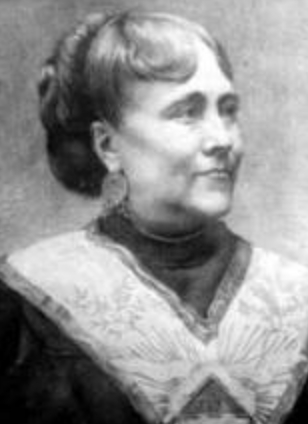
On this date in 1828, Maria Deraismes was born in Paris into a prosperous, middle-class family. She was given more educational opportunities than most young women of her era. She wrote a collection of dramatic sketches that were published in 1861, then turned her hand to comedies. She became one of the founding members of the feminist movement in France. Deraismes welcomed participants to the first French Women’s Congress, held in 1878, and was president of the Society for the Improvement of the Condition of Women.
She made a famous rebuttal to the misogynist labeling of women intellectuals as “bluestockings.” A rationalist, she was the first woman Freemason in France and directed several freethought societies. She was a co-presider of the Anti-Clerical Congress in Paris in 1881.
She died at age 65 in Paris, where a street is named after her as well as the town square in St. Nazaire. (D. 1894)
Horace Seaver
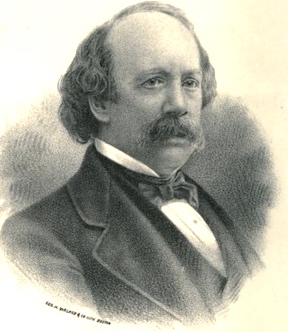
On this date in 1810, Horace Seaver was born in Boston. At age 28, he became a compositor at The Boston Investigator and learned the craft of printing. Seaver also began writing editorials under the name “Z.” The Investigator had been launched in 1830 by Abner Kneeland as a weekly, becoming the most effective and prominent freethought newspaper in the U.S., continuously published until 1904 when it merged with The Truth Seeker. When Kneeland, who had been prosecuted for blasphemy more than once, resigned, Seaver was selected to become its editor.
He edited the paper for the next half-century, promoting freethought, the working class and other secular reforms. He wrote Occasional Thoughts of Horace Seaver from Fifty Years of Free Thinking (1888). When his freethinking wife died, Seaver held a “social funeral,” an innovative model of the modern secular memorial service. When Seaver himself died, his funeral oration was given by the great 19th-century freethinker Robert G. Ingersoll. (D. 1889)
"We have secured some political freedom — I mean for such of us as have white complexions and are sound in the faith — but with regard to mental freedom, we are to the present hour almost literally in bondage to this potent spell, Authority. Men and women really dare not think for themselves, because they are fearful of some book or some church, some sect or some creed, that stands in the way."
— Remarks by Seaver at the Free Convention in Rutland, Vermont (July 21, 1858)
Taslima Nasrin
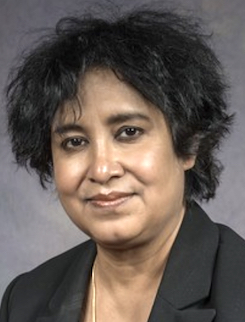
On this date in 1962, freethinker, atheist and feminist Taslima Nasrin was born in Mymensing, Bangladesh, to a Sufi physician and a devoutly religious mother. Nasrin later became the target of a series of fatwas, or religious sanctions, condemning her to death for blasphemy.
“I came to suspect that the Quran was not written by Allah but, rather, by some selfish, greedy man who wanted only his own comfort,” Nasrin explained in her speech accepting a Freethought Heroine Award at the 25th annual FFRF convention in 2002. “So I stopped believing in Islam. When I studied other religions, I found they, too, oppressed women.” She has often stated, “Religion is the great oppressor, and should be abolished.”
Nasrin earned an MBBS degree in 1984 and worked in gynecology and anesthesiology departments in medical colleges and universities. Her books of poetry began being published in the late 1980s, then she started writing popular columns on women’s rights in newspapers and magazines, which were collected in book form. In 1992, she received the prestigious Indian literary award “Ananda” for her book of essays. Nasrin reports that Islamic fundamentalists started campaigns against her by 1990, with demonstrations escalating over the next few years, including having her books burned at the national book fair.
When the novella “Shame” came out in 1993, about the plight of Hindus under Muslim order, it was banned, she was attacked at the national book fair, the first of three fatwa was issued, and a bounty on her head was offered. The Bangladeshi government brought criminal charges against her for defaming the Muslim faith the following year. Thousands in Bangladesh demonstrated regularly, sometimes daily, demanding her death. After a terrifying two months in hiding, and fearing the fate of Hypatia, Nasrin fled Bangladesh, seeking refuge in Sweden.
In a 1994 interview with The New Yorker, she said, “I want a modern, civilized law where women are given equal rights. I want no religious law that discriminates, none, period — no Hindu law, no Christian law, no Islamic law. Why should a man be entitled to have four wives? Why should a son get two-thirds of his parents’ property when a daughter can inherit only a third?”
Nasrin, a “woman without a country,” has also lived in France, the U.S. and Germany, living, for the most part, in India.
Among the dozens of awards and honorary doctorates she has received is the Sakharov Prize (1994). In addition to receiving FFRF’s 2002 Freethought Heroine Award, she was the recipient in 2015 of its Emperor Has No Clothes Award and said, “Islam is not compatible with human rights, women’s rights, freedom of expression and democracy.” She has continued to lecture, speak out and write, including a multi-book autobiography.
PHOTO: Nasrin at FFRF’s national convention in 2015; Ingrid Laas photo.
“There has always been a marked conflict between religion and science, and every time science emerges as the winner, as science bases itself on facts, not faith. It supports what is tested and is true and truth cannot be hidden by lies for a very long time. To abolish all kinds of hypocrisy from my country, we need more atheists to speak the truth.”
— Nasrin, accepting the Emperor Has No Clothes award in 2015
Chapman Cohen
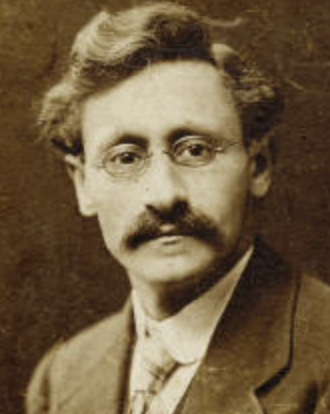
On this date in 1868, freethought advocate Chapman Cohen was born in Leicester, England, to Enoch Cohen, a confectioner, and his wife, Deborah (née Barnett). At the age of 21, he began a 50-year career as a popular and concise freethought writer and lecturer. When G.W. Foote died in 1915, Cohen succeeded him as president of the National Secular Society and editor of its publication The Freethinker.
Cohen was an efficient manager who brought security to the National Secular Society. He married happily and had a daughter, who died at age 29, and a son, who became a physician.
He gave up the NSS presidency in 1949 and handed The Freethinker over to F.A. Ridley in 1951. Cohen is considered the “last great Victorian freethinker.” (Victor E. Neuburg, The Encyclopedia of Unbelief) He wrote many articles and pamphlets, as well as Almost an Autobiography in 1940. (D. 1954)
“Gods are fragile things, they may be killed by a whiff of science or a dose of common sense. They thrive on servility and shrink before independence. They feed upon worship as kings do upon flattery. That is why the cry of gods at all times is ‘Worship us or we perish.’ "
— Chapman Cohen, "The Devil," undated pamphlet
Catherine Fahringer

On this date in 1922, Catherine Fahringer was born in Utah to a military family. After living in various places in the U.S. and abroad, her family settled in San Antonio, Texas, when she was 12. Raised as an Episcopalian, she was urged by family members to introduce her children to religion. While living in England, where her husband was stationed, she dutifully purchased The Golden Book of Bible Stories. Perusing it before she read the stories to her children, she had an epiphany: “I said to my husband, ‘I can’t teach this stuff to my kids. I’m nicer than God.” (San Antonio Express-News, March 24, 1991)
Fahringer found a venue for activism when she became involved with FFRF in 1987. She created and hosted “Freethought Forum,” a cable TV show. She became a well-known public figure in San Antonio, monitoring and challenging numerous, egregious state/church violations there. With wit and aplomb, she protested city prayer breakfasts and religious symbols on public property and kept freethought in focus with numerous op-eds, letters to the editor and educational letters to government officials and media.
In the 1990s she even managed to persuade then-Gov. Ann Richards and city officials to make proclamations commemorating freethought. Fahringer’s media appearances included being featured on TV’s “Sally Jessy Raphael Show,” where she quipped about rejecting the idea of a “Big Spook in the Sky.” She served as a national FFRF officer and on its governing council.
She died of pancreatic cancer at the age of 86. FFRF Co-President Annie Laurie Gaylor said of her, “We loved and miss her. She was not only one of FFRF’s best activists, but she was one of our best friends, best boosters and best advertisements for freethought.” FFRF offers the Catherine Fahringer Youth Activist Memorial Award in her honor. (D. 2008)
"We would be 1,500 years ahead if it hadn’t been for the church dragging science back by its coattails and burning our best minds at the stake."
— Fahringer interview, San Antonio Express-News, "Portrait of an Atheist" (March 24, 1991)
Theodore Schroeder
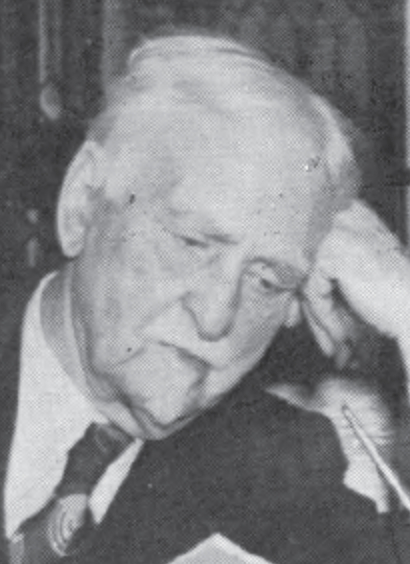
On this date in 1864, Theodore Schroeder was born on a farm near Horicon, Wisconsin. Because his parents “intermarried” (one was Lutheran, the other Catholic), they were disowned by their families. His father became an agnostic, and Schroeder was also influenced by the legacy of the freethinking German immigrants who came to Wisconsin after the failed 1848 revolution. He took the injunction to “go west, young man” to heart and traveled for about a decade, taking odd jobs to support himself.
In 1882 he entered the University of Wisconsin, studying engineering, then earning a law degree in 1889. He practiced law for 10 years in Salt Lake City, making a study of Mormonism. Schroeder worked for statehood for Utah, but grew alarmed at the Mormon theocratic hold, as well as the practice of polygamy, which he termed “sanctified lust.” In 1900 he moved to New York and formed the Free Speech League (a precursor to the American Civil Liberties Union) with Lincoln Steffens and other progressives.
By 1908, when he moved to Connecticut, Schroeder was focusing his activism against religionist Anthony Comstock and the Comstock laws, which suppressed free speech relating to sexual matters, especially discussion of birth control. He helped defend his friend and anarchist Emma Goldman at her Denver trial, as well as many others prosecuted in blasphemy or obscenity cases, including progressive ministers. He wrote Constitutional Free Speech Defined and Defended in an Unfinished Argument in a Case of Blasphemy (1919).
He turned his attention to what he called the erotogenetic theory of religion, which he developed after observing Mormonism. William James and others discredited the concept, but he found allies in Havelock Ellis and Chapman Cohen. He also worked with the National Liberal League, which became the American Secular Union.
Schroeder became the victim of the censorship he had worked against his entire life when his will, instructing that his works be published as a collection, was found invalid by the Connecticut Supreme Court. The court called his freethought writing “obscene,” offensive to religion and of no social value. Judge O’Sullivan wrote, “The law will not declare a trust valid when the object of the trust, as the finding discloses, is to distribute articles which reek of the sewer.” (D. 1953)
"The freethinker has the same right to discredit the beliefs of Christians that the Orthodox Christians enjoy in destroying reverence, respect, and confidence in Mohammedanism, Mormonism, Christian Science, or Atheism."
— Schroeder, "Constitutional Free Speech Defined and Defended in an Unfinished Argument in a Case of Blasphemy" (1919). "The Encyclopedia of Unbelief"
Etta Semple
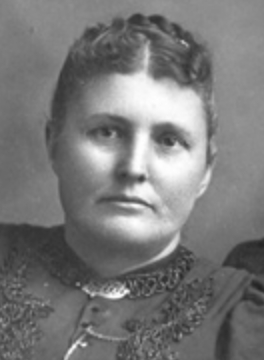
On this date in 1855, Etta Semple (née Martha Etta Donaldson) was born into a Baptist family in Quincy, Illinois. After being left a widow with two sons in 1887, she married Matthew Semple of Ottawa, Kansas, and they had one son. Etta became Ottawa’s town radical, espousing freethought, feminism, opposing racial bigotry, capital punishment and “blue laws.”
Her pro-working class novels included Society and The Strike. She helped found the Kansas Freethought Association to “fight ignorance, superstition and tyranny” and in 1879 was elected its president. She also served as vice president of the American Secular Union. From her parlor she published the bimonthly Freethought Ideal, an eight-page newspaper with a 2,000 circulation. She amused Ottawans in the summer of 1901 by strolling arm in arm with Carry Nation, prompting a local wag to quip: “One believes in no saloons, and one believes in no god.”
In 1902 she opened a “Natural Cure” sanitarium with 31 rooms. “No tramp ever went away hungry, and no fallen woman has been kicked down by us,” she wrote. While the Ottawa Evening Herald hailed her as a “Good Samaritan” and “one of the greatest benefactors Ottawa has ever had,” she was stalked by an assassin. In an unsolved murder on March 28, 1905, an elderly patient in the hospital was bludgeoned in bed. Semple was believed by authorities to be the intended victim.
When she died of pneumonia at age 59, court was adjourned and crowds filled the cemetery for a godless oration in the spring sun. The Evening Herald’s banner headline read “Good Deeds of A Good Woman Are on the Tongues of Ottawa Today.” The story added: “It was the biggest funeral Ottawa had ever seen. It was also perhaps the most unusual. No minister spoke. No hymns were sung, no flowers decorated the parlor.” Mourners sang one of her favorite secular songs, “Scattering Seeds of Kindness,” which the newspaper called “emblematic of Mrs. Semple’s life.” (D. 1914)
"I never yet have seen the person who could withstand the doubt and unbelief that enter his mind when reading the Bible in a spirit of inquiry."
— Semple, "A Pious Congressman Twice Answered," The Truth Seeker (Feb. 23, 1895)
Charles Bradlaugh
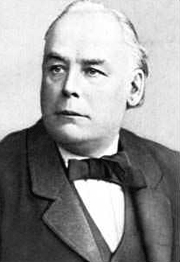
On this date in 1833, England’s best-known proponent of atheism, reformer Charles Bradlaugh, was born in London. He left school at age 11 to earn his living. When he announced his freethought views, he was forced to leave his family home and found support among other freethinkers, including the children of oft-jailed publisher Richard Carlile. Bradlaugh worked as a coal merchant. After joining the army, he worked as a solicitor’s clerk, learned the law and became an attorney.
He wrote and lectured about freethought under the pseudonym “Iconoclast.” Bradlaugh briefly became editor of the freethinking bi-weekly periodical The Investigator in 1858. By the time he became co-editor of the National Reformer in 1860, he was a famed social reformer and orator, known in England and abroad. In 1866 he founded the National Secular Society. Bradlaugh had two daughters and one son with his wife, whose serious drinking problem broke up the family in 1870.
Bradlaugh’s challenge in 1868-69 of the Security Laws, inhibiting distribution of controversial periodicals, brought their repeal. He also championed land reform. In 1876, he and colleague Annie Besant were prosecuted for “obscenity” for republishing a birth control booklet, The Fruits of Philosophy, by American doctor Charles Knowlton. After a long trial, the pair were convicted and faced jail and fines but were freed on a technicality. Bradlaugh was urged to run for Parliament in 1868, placing fifth. He ran several times before winning in 1880 but was refused seating because he would not take the religious oath.
Bradlaugh was reelected four times before finally prevailing in his fight to be seated in 1886, but the legal fight had drained him financially. Bradlaugh persuaded Parliament to pass a bill permitting the right to affirm in 1888. Bradlaugh lectured three times in the U.S. in the 1870s and was warmly received in India during his 1889 visit. His only surviving child, Hypatia Bradlaugh Bonner, took up the freethought/reform cudgels, also defending her father’s reputation from numerous “death-bed conversion” fables. D. 1891.
"I maintain that thoughtful Atheism affords greater possibility for human happiness than any system yet based on, or possible to be founded on, Theism, and that the lives of true Atheists must be more virtuous — because more human — than those of the believers in Deity, the humanity of the devout believer often finding itself neutralized by a faith with which that humanity is necessarily in constant collision.”
— Bradlaugh, "A Plea for Atheism" (1929)
Annie Besant
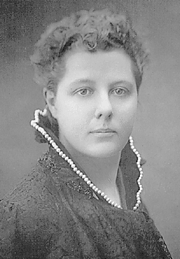
On this date in 1847, Annie Besant (née Wood) was born in London. The sheltered girl married the unpleasant Rev. Frank Besant (rhymes with “pleasant”) at 20. The reverend, she later quipped in an early autobiography, had “very high ideas of a husband’s authority and a wife’s submission.” Besant, after a course of reading, gave up Christianity at age 25 and soon after separated from her husband. In 1874 she met Charles Bradlaugh, Britain’s most prominent freethought leader and an attorney for the poor, who offered her a position on the weekly National Reformer.
They embarked on a platonic professional partnership of writing, speaking and reform. Besant became a celebrity among reformers, with George Bernard Shaw praising her as “the greatest orator in England, and possibly in Europe.” She persuaded Bradlaugh to reprint The Fruits of Philosophy, a book about birth control, to challenge the Obscene Publications Act. They were arrested, tried and narrowly avoided jail. She then rewrote the outdated booklet, but her involvement lost her custody of her 8-year-old daughter.
Annie became a student at London University when it agreed to admit women in 1878, receiving the only honors award in botany in 1881 in professor Thomas Huxley‘s class. She was the first woman on the London School Board and an advocate for working-class women and woman suffrage. Her enthusiasm for other causes and other men gradually strained her friendship with Bradlaugh. The rudest shock to Bradlaugh, his daughter Hypatia and other admirers came in 1889, when Besant adopted a new religious movement called theosophy.
Although retaining affection for freethought, she became a successor to the mystic founder of theosophy, Helena Blavatsky, and moved to India. A fanatical bent took Besant on a journey to occultism. But even in India, she was a true reformer, never quite losing her practical sensibilities. (D. 1933)
"I rejoice that I played my part in that educating of England which has made impossible for evermore the crude superstitions of the past, and the repetition of the cruelties and injustices under which preceding heretics suffered."
— Besant, "Autobiography" (1910)
James Fergus
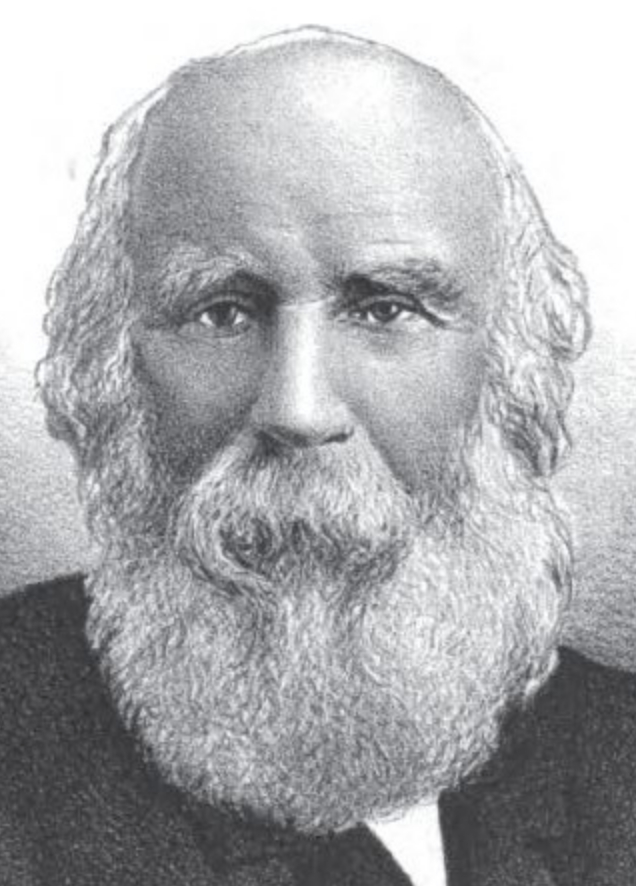
On this date in 1813, James Fergus was born in Lanarkshire, Scotland. He became a U.S. citizen in 1839 and in 1862 he settled in what would become Montana. He became an influential politician, cattle rancher, miner and judge. Fergus began questioning his family’s Presbyterian religion as a child and his “freethinking agnosticism” grew stronger after he left Scotland at age 20. “I am better known for my unbelief than any man in the territory, except [fellow Montana pioneer] Granville Stuart,” Fergus wrote in an 1883 letter.
His freethought views were so strong that when a Christian relative offered him a large sum of money if Fergus would tell him that there could be a God, Fergus refused. Although he needed the money, he replied to his relative, “I have come to the conclusion that there is not enough money in Scotland to make me tell a lie.”
He held several political positions and founded Fergus County. His wife, Pamelia Dillin, whom Fergus married in 1845, was also a freethinker. They had four children: Mary Agnes, Francis Luella, Andrew and Lillie.
Fergus actively supported the separation of state and church. During his time as a Territorial Council member, he opposed using taxes to fund a chaplain for council meetings and in 1884 he opposed including God in the Montana Constitution. He wrote an editorial in 1888 for the Fort Benton Record vigorously opposing converting Native Americans to Christianity.
Fergus is quoted as saying in 1883, “The Christian religion brought about a long period of ignorance still known to us as the Dark Ages, during which thought was curbed, common education banished, and conscience given over to a rude, vulgar and ignorant priesthood. And whatever good Christianity may have done since, much of the degeneracy of mankind during this period must be laid at its door.” (All quotations from the Fergus County History and Genealogy website.) D. 1902
"Religion is declining, with no better proof than I am here today. Two hundred years ago, I would have been burned at the stake. What was considered heresay [sic] by our fathers is tolerated now. The hell that frightened us in childhood has vanished into space. Heaven is not in our geographies. Therefore, we see the old faiths losing their hold on the human mind."
— Fergus, Society of Montana Pioneers speech, 1885 (quoted in the Lewistown News-Argus, 1994)
Lilian Leland
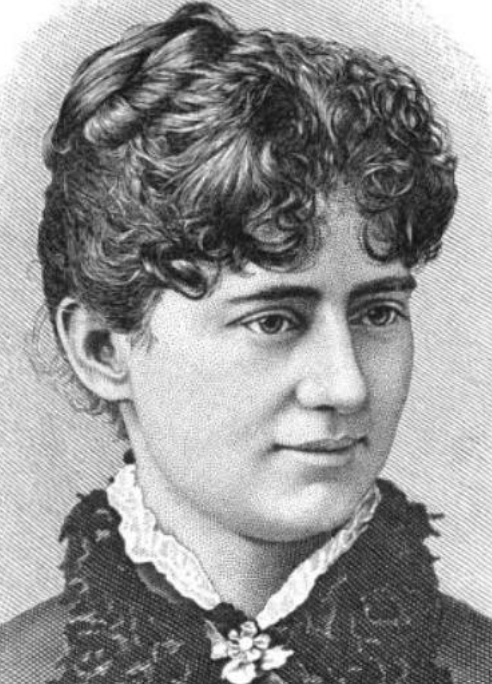
On this date in 1857, Lilian Leland was born in the United States. The daughter of freethinkers, she traveled 60,000 miles alone around the world at the age of 25 for nearly two years, starting with a voyage around Cape Horn. Her mother, Mary A. Leland, was one of the first women to study medicine in the U.S. and lectured on anatomy as early as 1852. Her father, Theron C. Leland, was a popular lecturer in the Liberal League. Leland was brought up to play chess and read widely, conceiving her plan to travel after reading “The Merchant of Venice.” She wrote a book, Traveling Alone: A Woman’s Journey Around the World, and married the son of Stephen Pearl Andrews, abolitionist and freethinker.
Samuel Porter Putnam described her as “Always pleasant and cheerful in appearance, and never, under any circumstances, uttering a complaint, she is, at the same time, possessed of a quiet determination that carries her smilingly and safely over all difficulties.” (“400 Years of Freethought,” 1894)
Leland died in Queens, New York, from pneumonia at age 76. (D. 1934)
“The studied atrocities that the Catholics and Protestants have inflicted on each other in the past ages, in the name of a ‘Merciful God’ exceed everything the world has ever seen in simple savage fiendishness, and an all-powerful being who has stood calmly by and permitted the torture and massacre of his own chosen children and chosen prophets, not to mention the thousands of unfortunate women and children, is — well, he is not the kind of God that I want to worship, and I don’t think either ‘merciful’ or ‘just’ are exactly the adjectives that should apply to him.”
— Leland, "Traveling Alone: A Woman's Journey Around the World" (1890)
Mary Ann Masterton

On this date in 1925, freethinking homemaker and community volunteer Mary Ann Masterton was born in Milwaukee to Rusk and Marion (Duchac) Potter. She graduated from Washington High School in Milwaukee and in 1948 married Bruce Masterton.
The family moved frequently, including three years in Munich, Germany, due mainly to Bruce’s work as a buyer for the Army & Air Force Exchange Service, which supplies military PX facilities worldwide. Mary Ann kept the home fires burning for their four children — cooking, cleaning, gardening and sewing clothes — while volunteering prolifically at schools, Lighthouse for the Blind, Scottish Rite Hospital and soup kitchens.
She made audio tapes for the visually impaired and taught English as a second language and youth classes at Unitarian Universalist congregations. Her UU connection was deep and extended over 50 years, said her daughter Samantha: “The Unitarian church in Dallas I was brought up in was almost militant about their common atheism. It seemed to be an unofficial requirement to join.”
People were drawn to her, Samantha said. “She was a stay-at-home mom to us, wife to her husband, and friend to everyone she met. She loved freely and fervently. Everyone felt they had a special connection to her. She loved putting on shows, singing, making people laugh.”
Mary Ann and Bruce moved in 1983 to Antigo, Wis., to care for her mother, who died two weeks later. She continued her community connections there with the Unitarians, Friends of the Library, schools and other groups. Bruce died in 1993.
While teaching education classes at her UU congregration, she wrote this in the parish newsletter: “I have lately come to realize that in order to be an honest person, so people can know and accept and (I hope) love who I really am, I must ‘come out’ as an atheist. For over 73 years I have considered myself so, but I hesitated to come out for fear of being misunderstood, of being shunned, and of losing friends and family.
She continued, “But having witnessed the healthy social changes LGBTQ people have developed by coming out to the world, I feel atheists should do the same for ourselves, for other atheists who have remained silent and unsupported, for the mental and emotional growth of all. Let us help the world to be a better place by teaching that atheists are searching and serving and singing of a broader concept of life and morals and death. When atheists speak out on our truths, we will find there are more of us than we knew. So, atheists: Speak up! Identify yourselves! Come out! We live honest, wonderful lives that include the best hopes religions offer without any gods or myths.”
“Her Christian friends insisted that Mom was a believer because she’d always let them pray for her because she thought it couldn’t hurt. But she didn’t believe any of it,” her daughter said after Mary Ann died at home at age 92. A private family gathering was held to mark her passing and memorials were established to benefit literacy and Antigo public schools. (D. 2018)
PHOTO: Masterton protesting GOP union-busting at the Wisconsin Capitol in her mid-80s. (Leslie Amsterdam photo, cropped)
I PRAISE ROUND STONES
I praise no god.
I only praise the sun and wind and
Moon-lit babies kissing gentle in my arms
Remembering other arms
And other kissing nights.
Books and letters I praise
And small fires that warm my face
And light the page.Cozy rooms in many houses
Filled with laughter and good talk –
These I praise.
And quiet walks
And fresh baked bread dripping honey.
I praise all the tender hands that soothe
And hold – make music – mend.I praise dear friends and lovers.
And, oh, the magic gardens burning
Their bright colors deep into my heart
Turning my bones into embers that will
Glow forever.
I praise round stones.
No god I praise.Whatever raises me to life
Puts me on my knees to praise.
To praise
Amen.— Mary Ann Masterton verse, November 1983
Sharlot Hall
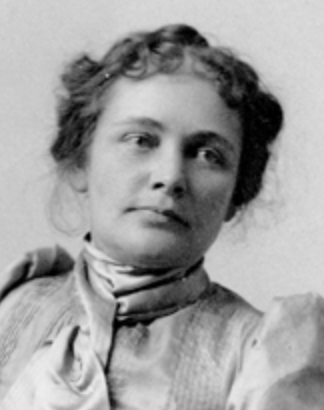
On this date in 1870, historian and freethinker Sharlot Mabridth Hall was born in Lincoln County, Kansas. She moved with her family to Arizona at the age of 11. She worked for room and board to attend Prescott High School briefly to escape ranch life but was forced to return home when her mother became ill. Hall took up photography and explored ancient Indian cliff dwellings with her brother. Seeing the lot of women of her era and taking a jaundiced view of the “egotism of the average man,” she vowed never to marry.
When her family attended lectures by freethinker Samuel Putnam in Prescott in 1895, the 24-year old Hall joined him on the platform. She wrote for The Truth Seeker, a major freethought periodical, as well as for many newspapers, and met many leading reformers such as Charlotte Perkins Gilman. Two volumes of Hall’s poetry were published. She began taking oral histories of Arizona pioneers. In 1909, territorial governor Richard Sloan appointed her territorial historian, giving her a Phoenix office.
Supported by the Federation of Women’s Clubs, she traveled throughout Arizona collecting history. After statehood was won, the first governor dismissed her in 1912. After a reclusive retirement caring for family members, she returned to work at age 57 in 1927 when she was given a life lease on the governor’s mansion to restore it as a museum of history in the city of Prescott. The mansion and Sharlot Hall Museum remain open to the public. D. 1943.
With a Box of Apples
Suppose a modern Eve would come
And tempt you with an apple,
Say just about the size of these?
Would you temptation grapple
And manfully declare: ‘I won’t?’
Or, would you say: ‘Well, I
Think since you’ve picked them
They’d be best in dumplings or in a pie.
And, let us ask the serpent in
To share with us at dinner.
A de’il with taste for fruit like that
Can’t be a hopeless sinner.— Sharlot Hall, freethought ditty
Warren Allen Smith
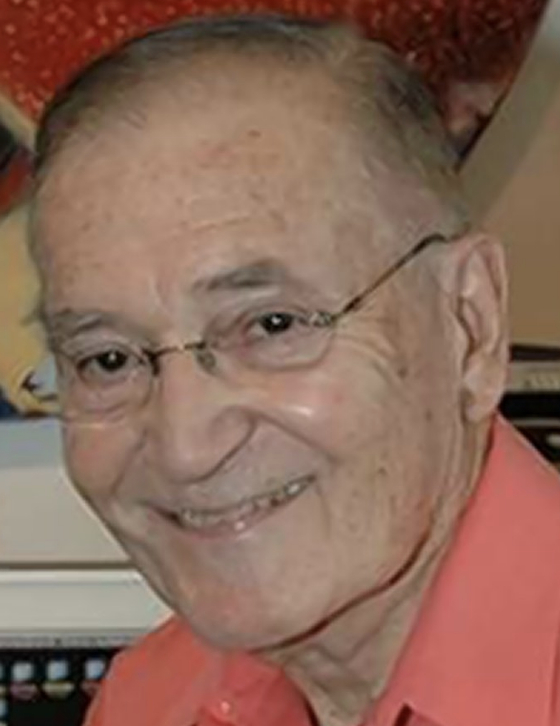
On this date in 1921, Warren Allen Smith was born in Minburn, Iowa. He graduated from Iowa State Teachers College with a B.A. in English in 1948 and received his M.A. in American literature from Columbia University in 1949. During his time in the U.S. Army from 1942-46, Smith was known as “the atheist in a foxhole,” according to his website. He worked as a high school English teacher from 1949-86. In 1961 Smith co-founded the Variety Recording Studio. He lived with his partner of 40 years, Fernando Vargas, an atheist, until Vargas’ death from AIDS in 1989.
Smith’s fame stemmed from his journalism, which often touched on humanist issues. He was book review editor for The Humanist from 1953-58 and wrote the column “Humanist Potpourri” for Free Inquiry from 1997-98, as well as writing columns for Gay and Lesbian Humanist, The Freethinker, The American Rationalist and Skeptical Inquirer. He wrote the books Who’s Who in Hell: A Handbook and International Directory for Freethinkers, Humanists, Naturalists, Rationalists, and Non-Theists (2000) and Celebrities in Hell (2002), which are extensive compilations of famous freethinkers. Smith’s other books include Gossip from Across the Pond (2005) and In the Heart of Showbiz (2011).
Smith rejected his Methodist upbringing during college. In a 2000 article for The New York Observer, he wrote, “If you’re the member of an organized church group, you really have to have a guilt complex. You have to feel guilty about not loving God enough or not contributing enough money or not contributing enough to society.” He described himself as a “humanistic naturalist” in his book Who’s Who in Hell. Smith’s other accomplishments included serving as as vice president of the Bertrand Russell Society from 1977-80, treasurer of the Secular Humanist Society of New York from 1988-93 and co-founding Agnostics, Atheists, and Secular Humanists Who Are Infected/Affected with AIDS/HIV Illness in 1992 (although Smith himself was not HIV-positive). He created Philosopedia, an online reference for philosophers and atheists. (D. 2017)
"Were there atheists in foxholes during World War II? Of course, as can be verified by my dogtags. … A veteran of Omaha Beach in 1944, I insisted upon including 'None' instead of P, C, or J as my religious affiliation."
— W.A. Smith, Freethought Today (November 1997)
Maud Ingersoll
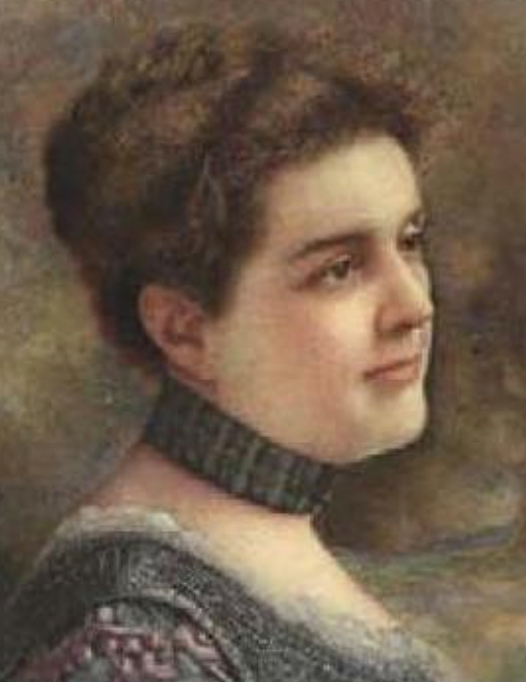
On this date in 1864, Maud Ingersoll was born in Peoria, Illinois, second daughter of “The Great Agnostic” Robert G. Ingersoll and Eva Parker Ingersoll. Maud, like her older sister, Eva, was given the middle name “Robert.” With Eva, Maud received instruction at home by her parents with extra tutoring in German, French, Italian, music and art. Both girls read before the age of 6, although not pushed into formal education.
As teenagers, they sometimes helped their father research the bible and religious writings for his lectures. “Father had read with us and together we have looked up references, localities and proofs,” Eva once wrote, adding that the more they came to be acquainted with Christianity, the less they liked it.
Maud became Ingersoll’s special attendant, accompanying him on lecture tours. She once stayed in the courtroom throughout a protracted, six-week trial involving a charge of forgery over a will in Butte, Montana. After Ingersoll’s death she continued to refute spurious claims, which she was accused of circulating, that her father had recanted: “At the time of his death — in fact, the very morning of his death — he was working on a new lecture on Jesus Christ to be delivered the next winter and in which he intended saying that Christ was a myth,” Maud reported. (D. 1936)
"I wish to say emphatically that there isn’t a word of truth in this statement. Neither my sister nor myself is connected with any church in any way. Although our father has always wished for us to study and think for ourselves, we agree with him heartily in his religious belief."
— Ingersoll, denying her religious conversion in a slander put forth by Rev. W. W. Landrum, First Baptist Church of Atlanta (1883)
Harriet Law
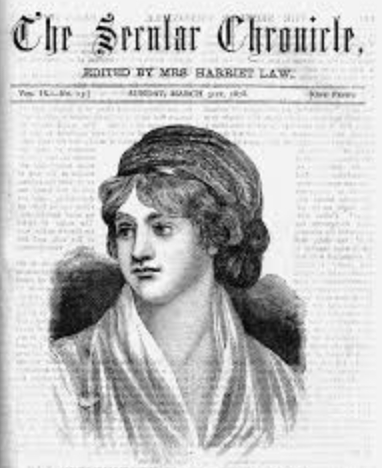
On this date in 1831, Harriet Teresa Law (née Frost) was born in County Essex, England. The daughter of a small farmer, she was raised as a Calvinist “Strict Baptist” and taught Sunday school. In the 1850s she began debating with freethinkers such as George Holyoake but in the process “saw the light of reason” in 1855 and embraced atheism and feminism and became a salaried speaker for the secularist movement while her husband Edward, also a freethinker, stayed home to care for their four children.
Law was president of the Freethought League in 1869 and was repeatedly elected to (but declined) the position of vice president of the National Secular Society. She bought the Secular Chronicle in 1876 and edited the paper, assisted by her daughter, until 1879. She wrote In her first month as editor, “[T]he Bible does assign women a distinct, and what is worse, a subordinate sphere, rendering her subject to man in nearly every relationship of her life.” She gave the paper a broader scope and published profiles of women freethinkers but sold it because it was losing too much money.
Shortly after that, Law retired from public activities but remained a freethinker until her death. Her early retirement may have been due to ill health but was also partly a result of having been gradually edged out of the movement by Charles Bradlaugh, whose well-known hostility to socialism no doubt added to his already strained relationship with Law. She had also criticized his authoritarian style of leadership.
Eleanor Marx, Karl Marx’s daughter, said Law was one of the first women to recognize “the importance of a woman’s organisation from the proletarian point of view,” adding, “When the history of the labour movement in England is written, the name of Harriet Law will be entered into the golden book of the proletariat.” (Marx, Engels & Lapides, 1990.) She died of a heart attack at age 65 in 1897.
“At the height of her fame as a Secularist, Harriet Law referred to her religious past as evidence of the fact that even the most devoted of Christians could be made to see the light of reason.”
— "Infidel Feminism in Victorian Freethought," lecture by Laura Schwartz, Warwick University (Oct. 13, 2013)
Vashti Cromwell McCollum
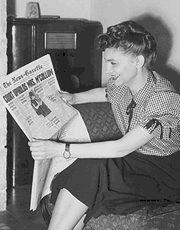
On this date in 1912, champion of the First Amendment Vashti McCollum, née Cromwell, was born in Lyons, New York, the daughter of Arthur G. and Ruth Cromwell. Arthur was a noted atheist activist in Rochester. Vashti was named by her mother for the biblical character who was “the first exponent of woman’s rights.” She studied at Cornell and the University of Illinois but on the verge of graduation married John Paschal (“Pappy”) McCollum in 1934. He was a University of Illinois horticulture department professor. They had three children before she completed her degree in political science and law in 1944.
The couple’s idyllic life as a faculty family in Champaign changed radically when their oldest boy, Jim, entered the fourth grade and was pressured to participate in religious instruction. When she withdrew Jim from the class, he was put in what amounted to detention. After filing suit to stop the unconstitutional instruction, she lost her job at the university and was branded “that awful McCollum woman.” The family became pariahs to much of the community.
Despite losing at both the trial and appellate levels, McCollum did not give up. On March 8, 1948, the U.S. Supreme Court, in a decision delivered by Justice Hugo Black, vindicated her in an 8-1 decision that is still precedent. She wrote her classic account One Woman’s Fight in 1951 and went on to serve two terms as president of the American Humanist Association and received its distinguished service award.
McCollum earned her master’s degree in mass communication as a returning student and by the late 1950s became a world traveler, often going “surface,” visiting nearly 150 countries and all seven continents, including Antarctica. She was an FFRF honorary officer, was featured in the foundation’s 1988 film “Champions of the First Amendment” and was inducted into the National Women’s Hall of Fame.
The New York Times, Los Angeles Times and major British newspapers all carried stories of her death in 2006 at age 93.
"Between being praised and persecuted, condoned and condemned, I might understandably have become bewildered, particularly at the brand of ethics sometimes displayed by the staunch defenders of Christianity. But of one thing I am sure: I am sure that I fought not only for what I earnestly believed to be right, but for the truest kind of religious freedom intended by the First Amendment, the complete separation of church and state."
— Vashti Cromwell McCollum, "One Woman's Fight" (1951)
Francis Ellingwood Abbot
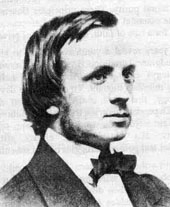
On this date in 1836, philosopher and theologian Francis Ellingwood Abbot was born into a family of Boston transcendentalists. Educated at Harvard and Meadville Theological School. He graduated from Harvard ranked number one in the class of 1859 and then married Katharine Fearing Loring. He became a Unitarian minister but by 1868 was forced to leave the pulpit in Dover, N.H., because his views were seen as too radical. New Hampshire’s highest court ruled in 1868 that he was “insufficiently Christian” to serve a splinter congregation in the building owned by the First Unitarian Society of Dover.
By now an avowed Darwinian, Abbot moved to Toledo, Ohio, to serve a Unitarian congregation but by 1872 it had dwindled in size to the point where members stopped paying his salary. Giving up on the pulpit, he founded the Free Religious Association and its journal The Index, a weekly paper “devoted to free religion” and “scientific theism.” He edited the paper until 1880, then founded another freethought journal, The Open Court. He taught at a boy’s school from 1881-92 in Cambridge, Mass.
Abbot wrote extensively. His books include Scientific Theism (1885), The Way Out of Agnosticism, or the Philosophy of Free Religion (1890) and The Syllogistic Philosophy, or Prolegomena to Science (two volumes, posthumously in 1906). In 1903, distraught on the 10th anniversary of his wife Katie’s death, Abbot died at age 66 on her grave in Beverly, Mass., after taking an overdose of sleeping pills. Theirs was a great love, author Brian Sullivan wrote in If Ever Two Were One: A Private Diary of Love Eternal (2005), a collection of Abbot’s correspondence and diary entries.
In 1894, a year after Katie’s death, he wrote, “[H]er soul was the violet of my home, fragrant with heaven’s own breezes, and lovely with a modest charm that kept me and keeps me her lover as in the days of yore.” (D. 1903)
“That great and growing evils render it a paramount patriotic duty on the part of American citizens, who comprehend the priceless value of pure Secular government, to take active measures for the immediate and absolute secularization of the state, and we earnestly urge them to organize without delay for this purpose.”
— Francis Ellingwood Abbot, from "Nine Demands of Liberalism," The Index (April 6, 1872)
Joseph McCabe
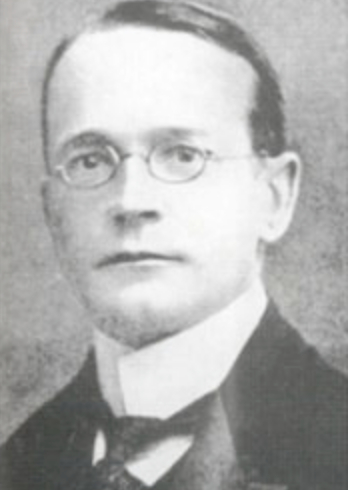
On this date in 1867, former priest and freethought scholar Joseph McCabe was born in Macclesfield, England, to a Catholic father and Protestant mother who converted to Catholicism. As the second son in the large and poor family, he was sent at age 16 to a preparatory college at the Gorton Franciscan monastery. He was ordained a priest at age 23. As a teacher of philosophy at a Catholic school, McCabe began to doubt religion. In 1895 his moment of “no faith” came on Christmas Eve after weighing a list of pro and con arguments for belief in God (see quote below).
McCabe wrote Twelve Years in a Monastery (1897), which sold 100,000 copies. Among his 200 published books were many biographies. He also translated about 50 works, including Ernest Haeckel’s Riddle of the Universe (1902), and popularized science and history. His critiques of religion include The Rise and the Fall of the Gods (1930).
Toward the end of his life, he wrote primarily about the unholy alliance between fascism and other governments with religion in such books as The Papacy in Politics Today (1937) and A History of the Second World War (1946).
Although his acquaintances were a “who’s who” of freethinkers and reformers, McCabe’s testy personality got him expelled from the British Rationalist Association. He maintained a long-term relationship with American paperback magnate E. Haldeman-Julius, who published 121 “Little Blue Books” by McCabe and 122 larger books, earning McCabe $100,000 in royalties. McCabe lived to age 87 and requested that his epitaph read “He was a rebel to his last breath.” (D. 1955)
PHOTO: McCabe in 1910.
"I took a sheet of paper, divided it into debt and credit columns on the arguments for and against God and immortality. On Christmas Eve I wrote ‘bankrupt’ at the foot. And it was on Christmas morning 1895, after I had celebrated three Masses, while the bells of the parish church were ringing out the Christmas message of peace, that, with great pain, I found myself far out from the familiar land — homeless, aimlessly drifting. But the bells were right after all; from that hour on I have been wholly free from the nightmare of doubt that had lain on me for ten years."
— Joseph McCabe, "Twelve Years in a Monastery" (1897)
J.M. Robertson
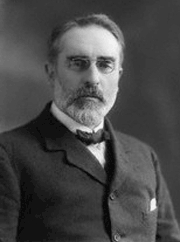
On this date in 1856, John Mackinnon Robertson was born on the Isle of Arran, Scotland. He left school at 13, joined the staff of the Edinburgh Evening News in 1878 and several years later moved to London so he could work on the National Reformer, Charles Bradlaugh‘s publication, which he edited until 1893. That year Robertson founded the Free Review, which he published for two years. He lectured in the United States in 1897-98. In 1900 he traveled to South Africa to report on martial law for the Morning Leader. From 1906-18 he served in Parliament.
Robertson specialized in comparative mythology and believed Jesus never existed. He wrote Christianity and Mythology (1900) and Pagan Christs (1903), still influential works. Other books include Short History of Christianity (1902) and the two-volume Short History of Freethought (1915). His expertise extended to economics, linguistics and politics.
In Man and His Gods (1952), physiologist and science writer Homer W. Smith described Robertson as an “outstanding exponent of rationalism and one of the foremost scholars produced in England in the last six decades.” (D. 1933)
"Petronius was surely right in saying ‘fear made the gods.’ In primitive times fear of the unknown was normal; gratitude to an unknown was impossible."
— Robertson, "Pagan Christs" (1903)
Gora
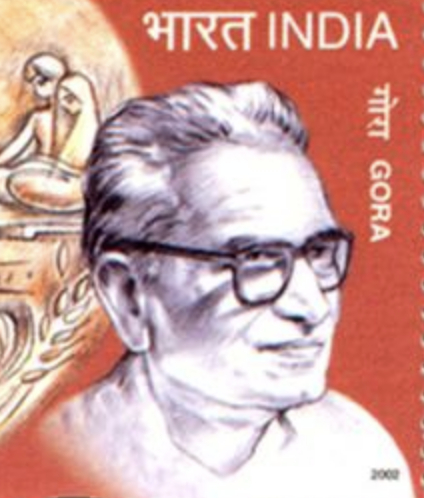
On this date in 1902, Goparaju Ramachandra Rao, the Indian atheist leader known as Gora, was born into a high-caste Hindu family. He wrote in his autobiography, We Become Atheists, that he grew up “conventionally orthodox and superstitious.” He pursued a botany degree, eventually earning his master’s in botany at Presidency College in Madras. He and his wife Saraswathi were married in 1922 when she was only 10. Both their families were Orthodox Hindu, which dictated that girls must marry before puberty, until the Child Marriage Restraint Act was passed in 1935.
Gora was excommunicated by his family for his atheism and devoted his life to propagating it. In 1940 he and his wife co-founded the Atheist Centre in a small village in the Krishna district. On the eve of Independence in 1947, they moved it to Vijayawada. Gora wrote many books, including Atheism Questions and Answers, An Atheist Around the World, An Atheist with Gandhi, The Need of Atheism and Positive Atheism. From 1949 on he wrote a column on atheism and began publishing The Atheist, a monthly, in 1969.
The Goras organized the first “beef and pork friendship” gathering in 1972 to foster social cohesion. Among the hundreds who gathered, 138 people ate beef and pork together, including atheists, Hindus, Muslims and Christians.
His atheism dictated his campaign to abolish the caste system with its “untouchables” and the idea of “karma” or divine fate. The Atheist Centre provides counseling, promotes intercaste and casteless marriages (more than 500 have taken place there), works to abolish child marriages, provides aid to vulnerable women, educates against belief in witchcraft and sorcery and promotes sexual education and family planning. After he died at age 72, Saraswathi directed the center until her death in 2006. They had nine children. (D. 1975)
"The greatest contribution of atheism is the provision of a firm basis for ethical conduct. Atheism explains that morality is a social obligation but not a passport to heaven and salvation. The theistic belief in divine retribution sidetracked moral behavior. Believers were more prone to please the god of their imagination by prayer and ritual than to conform to rules of moral conduct.”
— Gora essay, "A Note on Atheism" (1962)
Stephen Symonds Foster
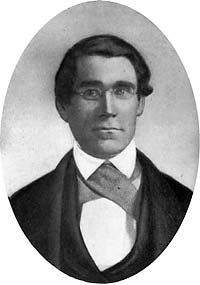
On this date in 1809, Stephen Symonds Foster was born in Canterbury, N.H. He graduated from Dartmouth College in 1838 and went on to enroll in Union Theological Seminary, where he became disheartened with the pro-slavery views of many churches. The principal of Union Theological Seminary offered Foster a bribe to stop discussing his position on slavery, but Foster declined and left the seminary after only a year.
He helped to organize the New Hampshire Young Men’s Anti-Slavery Society and was a member of the American Anti-Slavery Society, along with his wife, Abigail Kelley. Foster and Kelley were also strong supporters of women’s rights and the temperance movement. The family lived on a farm called Liberty Farm in Massachusetts, which they used to help slaves escape on the underground railroad.
Foster was an outspoken abolitionist who critiqued churches for their support of slavery, often interrupting services to rail against it. In 1844 he published the pamphlet “The Brotherhood of Thieves; or, a True Picture of the American Church and Clergy,” an exposé of the anti-abolitionist views of churches and the clergy. In the introduction he described it as a “testimony against the popular religion of our country.” (D. 1881)
“During the 1844 New England Antislavery Convention, Foster held up a collar and manacles and declared, ‘Behold here a specimen of the religion of this land, the handiwork of the American church and clergy.’ "
— "The Puritan Origins of American Patriotism" by George McKenna (2007)
Margaret K. Knight
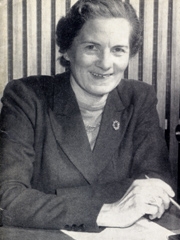
On this date in 1903, psychologist Margaret Kennedy Knight, née Horsey, was born in Hertfordshire, England, earning her bachelor’s degree at Girton, Cambridge, in 1926 and her master’s in 1948. “I had been uneasy about religion throughout my adolescence, but I had not had the moral courage to throw off my beliefs until my third year in Cambridge,” she wrote in the 1955 preface to Morals Without Religion. “A fresh, cleansing wind swept through the stuffy room that contained the relics of my religious beliefs. I let them go with a profound sense of relief, and ever since I have lived happily without them.”
She married Arthur Knight, a professor of psychology, in 1936, then moved with him to Aberdeen, Scotland, and lectured at the University of Aberdeen from 1936-70. She and her husband co-wrote several textbooks. She became a celebrity across Great Britain when she achieved the coup of promoting freethought on BBC Radio. Seeking to uncouple moral education from religion, Knight had submitted a draft script in 1953 after long negotiations. The BBC finally agreed that as a psychologist, she could broaden her approach to include “positive advice to non-Christian parents on the moral training of children.”
The fireworks started after her first talk in January 1955 was written up in newspapers, including the Sunday Graphic story headlined “The Unholy Mrs. Knight” describing her as “a menace.” The BBC lectures appeared in her 1955 book Morals Without Religion. In 1961 she edited Humanist Anthology From Confucius to Bertrand Russell (revised in 1995 by James Herrick) and updated her views on religion in the 1975 pamphlet “Christianity: The Debit Account.” (D. 1983)
"Ethical teaching is weakened if it is tied up with dogmas that will not bear examination."
— Knight, "Morals Without Religion" (1955)
Edwin Kagin
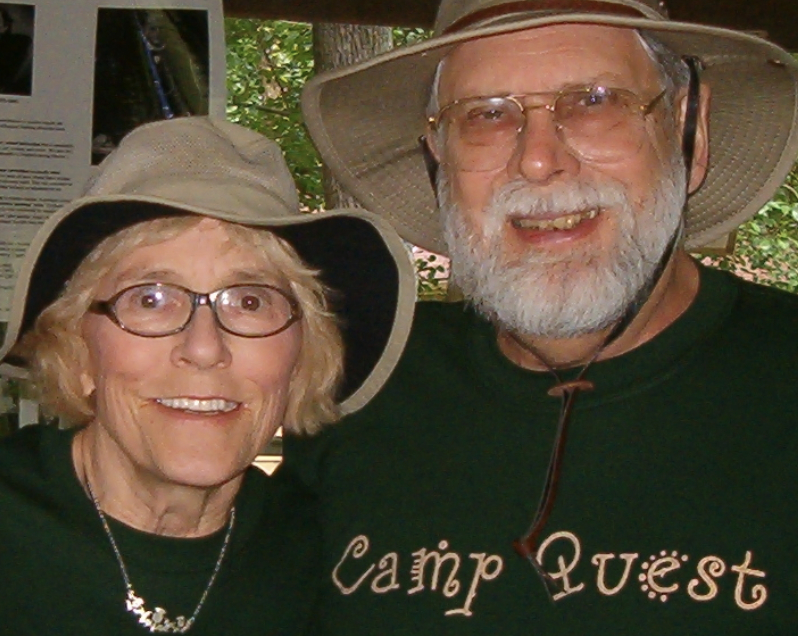
On this date in 1940, Edwin Frederick Kagin was born in Greenville, South Carolina. In 1996 he and his wife Helen founded Camp Quest, a summer camp for the children of atheists, humanists, agnostics, skeptics and freethinkers. The Kagins suggested Camp Quest as a way to counter the exclusion of nontheists from the Boy Scouts. Over 16 locations of Camp Quest have spread across the U.S., with branches in Europe and Canada. Campers participate in traditional activities such as swimming, camp fires, crafts, hiking, along with participating in educational activities.
Those activities include science experiments, learning about famous freethinkers, evolution and world religions. Campers also participate in a logical exercise in which they attempt to prove an invisible unicorn does not exist. Camp Quest’s vision is “a world in which children grow up exploring, thinking for themselves, connecting with their communities, and acting to make the most of life for themselves and others.”
The son of a Presbyterian minister, Kagin earned his law degree from the University of Louisville in 1972. In addition to practicing civil rights and constitutional law, he was the national legal director for American Atheists. He served in the U.S. Air Force as a medic in 1961-62. Kagin was the author of Baubles of Blasphemy (2005) and a contributing author of The Fundamentals of Extremism: The Christian Right in America (2003). He was married to Helen from 1984 until her death in 2010. He was a longtime FFRF member. (D. 2014)
PHOTO: Helen and Edwin Kagin in 2005. CC 4.0
Atheists Are Everywhere
There are Atheists in foxholes
Atheists in hurricanes
There are Atheists in all the roles
Denied by your refrains.Atheists are your fellow citizens
People who love and laugh and cry
Atheists are your relatives and friends
Don’t insult them with a lie.Atheists in many foxholes served
And some have had to die
Give Atheists the thanks deserved
Don’t dismiss them with a lie.Atheists are all around you
They work, they help, they care
And no matter what you think is true
Atheists are everywhere
And no matter what you think is true
They do not want your prayer.— Kagin poem, "Atheists Are Everywhere" (Sept. 12, 2005)
John Toland
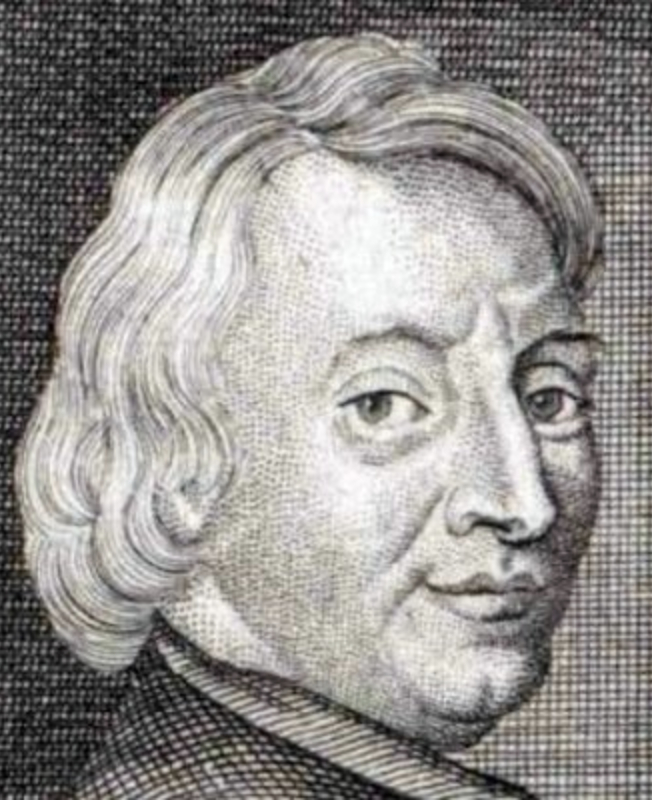
On this date in 1670, John Toland was born in Ireland, where he was rumored to be the son of a Catholic priest. He was “Educated from the cradle in the grossest superstition and idolatry,” he later wrote in Apology (1697). By age 15 he had rejected Catholicism by “his own reason.” He studied at Glasgow College from 1687-90, aligning himself with Presbyterianism and earning a master’s degree. He then studied at Leyden, Holland.
The Encyclopedia of Unbelief terms Toland “perhaps the first professional freethinker.” He directed the bulk of his writing, more than 100 works, against established religion while shrewdly qualifying his statements to avoid prosecution. Toland was perhaps the first to be called a “freethinker” (by Bishop Berkeley). At Oxford, Toland wrote the deistic Christianity not Mysterious (1696), in which he credited “cunning priests” with the promotion of irrationality. He returned to Ireland for a visit, where his book was castigated from the pulpits and by the Irish House of Commons, which ordered the book burnt and the author arrested.
One member of the House even moved “that Mr. Toland himself should be burnt.” By 1704, Toland, who had translated the work of Giordano Bruno, called himself “a Pantheist” and is believed to be the first to use the term, defining it as the belief that only the material universe and nature are divine. In History of the Soul’s Immortality, Toland asserted that this doctrine was a self-serving invention by Egyptian priests. He also wrote Life of Milton (1698) and political tracts. His pamphlet “Nazarenus” (1718) contained early samples of biblical criticism. His Pantheisticon (1720) rejected supernaturalism. His essay “Tetradymas” contains bible criticism and a description of the murder of Hypatia. (D. 1722)
“Virtue alone is enough to live happily and brings its own reward.”
— Toland, "Pantheisticon" (1720)
Baron d’Holbach
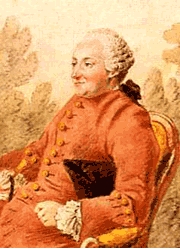
On this date in 1723, Paul Henri Baron von Holbach, one of the Enlightenment’s most passionate atheists, was born in Edesheim, Germany, into a Catholic family. An uncle who became a wealthy nobleman brought Holbach to Paris when he was 12, educated him and left him his fortune. Holbach studied law in Holland, returned to Paris and inherited more wealth. Holbach befriended the Encyclopedists, including Denis Diderot, and his Parisian home became a hub of the Enlightenment.
Holbach wrote several articles for the Encyclopedia and also translated German scholars, then began writing his philosophical pieces in secret. He did not sign his name to these atheistic works, so, although some were ordered to be burned in France, he was spared prosecution. He eventually inspired a “Holbachian” movement of anticlericalism and philosophical materialism.
Holbach’s writings include a series of works published in 1770 inquiring into the historicity of Jesus, the saints and other freethought subjects. Christianity Unveiled was published in 1766, The Holy Disease in 1768, System of Nature in 1770 and Le Bon sens (Common Sense) in 1772, followed by several political and moral treatises. In Common Sense, Holbach wrote that “Religion is a mere castle in the air. Theology is ignorance of natural causes; a tissue of fallacies and contradictions.”
He believed “Knowledge, Reason, and Liberty, can alone reform and make men happier.” He optimistically predicted “If the ignorance of nature gave birth to the gods, knowledge of nature is destined to destroy them.” Holbach translated and adapted many major deistic English writings. He particularly criticized Catholicism as an obstacle to freedom and the common good. (D. 1789)
“Savage and furious nations, perpetually at war, adore, under divers names, some God, conformable to their ideas, that is to say, cruel, carnivorous, selfish, blood-thirsty. We find, in all the religions, ‘a God of armies,’ a ‘jealous God,’ an ‘avenging God,’ a ‘destroying God,’ a ‘God,’ who is pleased with carnage, and whom his worshippers consider it a duty to serve. Lambs, bulls, children, men, and women, are sacrificed to him. Zealous servants of this barbarous God think themselves obliged even to offer up themselves as a sacrifice to him.”
— Baron d'Holbach, "Common Sense" (1772)
Richard Carlile
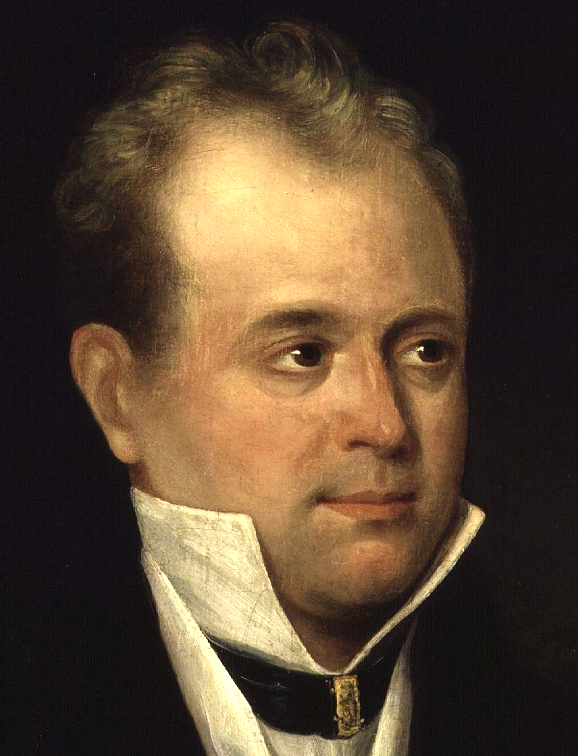
On this date in 1790, freethinker and tireless free-speech champion Richard Carlile was born in Ashburton, Devon, England. After attending charity schools, Carlile began working at 13. In 1813 Carlile moved to London. He was jailed for selling political satires in 1817. A freethinking deist, he published an inexpensive version of The Age of Reason by Thomas Paine and The Deist, a pioneering and popular freethinking weekly. Carlile was prosecuted for blasphemy and seditious libel in 1819 by the Society for the Suppression of Vice.
He became a cause celebre during two trials in the Guildhall where he defended himself. He was convicted and sentenced to pay £1500 and spend three years in prison. Carlile’s prison stay was doubled after he refused to pay the fine. He spent 1819-1825 at Dorcester prison, where he published freethought tracts with wide circulation and influence. He took over publication in 1852 of the weekly Republican, a major freethought periodical with a circulation of 4,000 to 5,000. Carlile’s wife Jane and his sister and many supporters were imprisoned for disseminating his tracts.
A campaign called the “war of the shopmen” continued until Carlile, his workers and vendors were released. Carlile opened up a shop to print and promote freethought literature and teamed up with “Rev.” Robert Taylor in the late 1820s on freethought speaking tours. Together they opened the Rotunda in London, a hub of dissent. Both men were arrested and convicted of various blasphemies in 1831. Carlile continued organizing and writing from prison with the help of Eliza Sharples, known as “Isis,” who became his common-law wife. They had at least four children.
Carlile spent more than a decade of his life in prison. He is remembered for his pioneering support for birth control, universal suffrage, parliamentary reform and free speech advocacy. After living for years in extreme poverty, he died in London at age 52. According to a contemporary account of his burial in a common grave, three of his sons protested the proceeding officiated by a Protestant clergyman, one noting that his father “passed his life in opposition to all priestcraft.” (D. 1843)
"The fable of a god or gods visiting the earth did not originate with Christianity."
— Carlile, cited by Ira Cardiff in "What Great Men Think About Religion" (1945)
Queen Silver
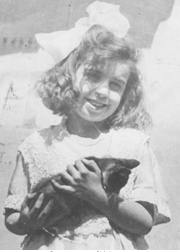
On this date in 1910, “girl philosopher” Queen Silver was born in Portland, Oregon, where her mother, Grace Verne Silver, 21, a Socialist lecturer, was stranded during a tour. She never met her father or revealed his name, calling it “classified information.” At 10 days old she took the first of many railway journeys, going with her mother to Los Angeles, where they settled. Starting in 1917 they and her stepfather became extras in motion pictures to supplement their income. Silver was taught at home and was expected at an early age to be independent, to pay her own board and even cook her own meals.
She was reading Darwin at age 7, and at age 8 delivered a series of lectures in Los Angeles, an event noteworthy enough to be covered by the Los Angeles Record. At age 11, she publicly challenged William Jennings Bryan to a debate on evolution. Bryan declined. The Daily News in Inglewood carried a front-page article on June 29, 1925, reporting that “Inglewood’s famous girl philosopher, talker and writer” might attend the Scopes trial and pictured her holding a chimpanzee. She was unable to afford the trip but 1,000 of her pamphlets were distributed during the trial.
She was notorious enough that Cecil B. DeMille modeled the title character of his 1928 movie “The Godless Girl” after her. One synopsis: “Two teenagers, one an atheist and the other a Christian, fall in love at a brutal reform school.”
From 1923-34 she published “Queen Silver’s Magazine,” a 16-page periodical with a freethought angle and a national subscription. During the Depression, Silver took seasonal office work and, starting in 1936, became a junior typist clerk and withdrew for the most part from political involvement. Attending night school, she graduated from Los Angeles City College in the 1960s with an associate’s degree. She stayed in state civil service, working as a court reporter, and retired in 1972.
She helped to found the Los Angeles group that later became Atheists United, serving on its board and lecturing occasionally. She was a member of many humanist organizations, including FFRF. Wendy McElroy, a friend and admirer, published the biography Queen Silver: The Godless Girl in 2000, two years after Silver’s death at age 87. (D. 1998)
“In America, the church controls the State and Capital controls both Church and State. Capital finances religion and god sanctifies capital. The workingman is victimized by both god and gold. One destroys his brain and the other plunders his body.”
— From Silver's essay titled "God's Place in Capitalism" (1926)
Elmina D. Slenker
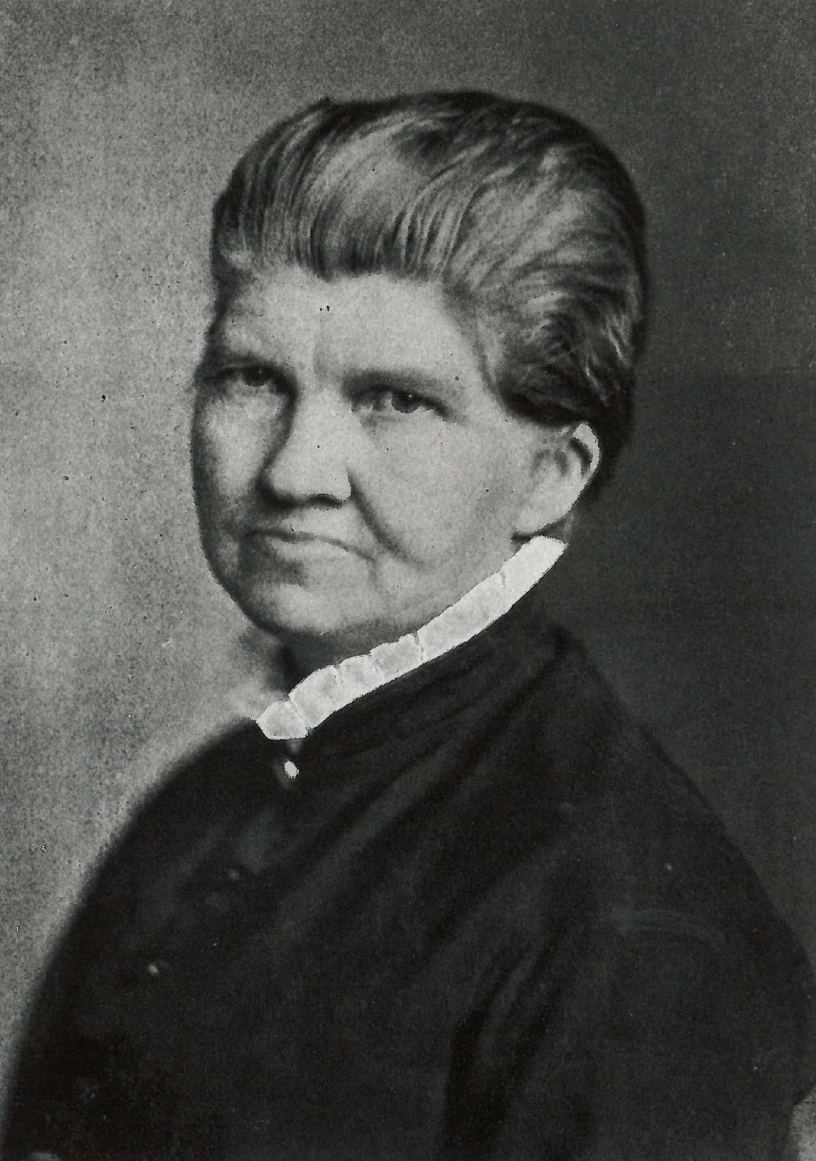
On this date in 1827, Elmina Drake, the daughter of a Shaker preacher expelled for becoming a “Liberal,” was born in La Grange, New York. She wrote for nearly all of the freethinking journals of her era and knew many of the reformers. She advertised successfully for an egalitarian husband in the Water-Cure Journal and married Isaac Slenker, Quaker-style.
She preached alcoholic and sexual temperance, adopting a philosophy called “Dianaism,” which taught sexual sublimation and practices to avoid unwanted pregnancies in a manner too plain-spoken for the guardians of the Comstock Act. At the age of 60 in April 1887, Slenker was arrested for mailing sealed letters of advice on sex and marriage to private correspondents.
With bail set at $2,000, she was shown into a cold cell with a blanket on the floor. The New York Times critically reported in its coverage of her newsworthy arrest that she refused to swear on a bible and testified at a preliminary hearing that she did not believe in god, ghosts, heaven, hell, the bible or Christianity.
The pleasant, ordinary-looking woman was vilified as “homely” for sporting a short haircut. Unable to raise bail she spent six months in jail and was indicted on July 12, 1887. Freethinking attorney Edward W. Chamberlain represented her during her October trial, where a jury found her guilty. She was set free on a technicality by the judge on Nov. 4, 1887. Truth Seeker readers paid her legal expenses.
She wrote Studying the Bible in 1870, edited Little Freethinker and wrote several novels, including The Clergyman’s Victims, The Infidel School-Teacher and The Darwins. She died in Virginia in her early 80s. (D. 1908)
“I became a sceptic, doubter, and unbeliever, long ere the ‘Good Book’ was ended."
— Slenker, "Studying the Bible" (1870)
D.M. Bennett
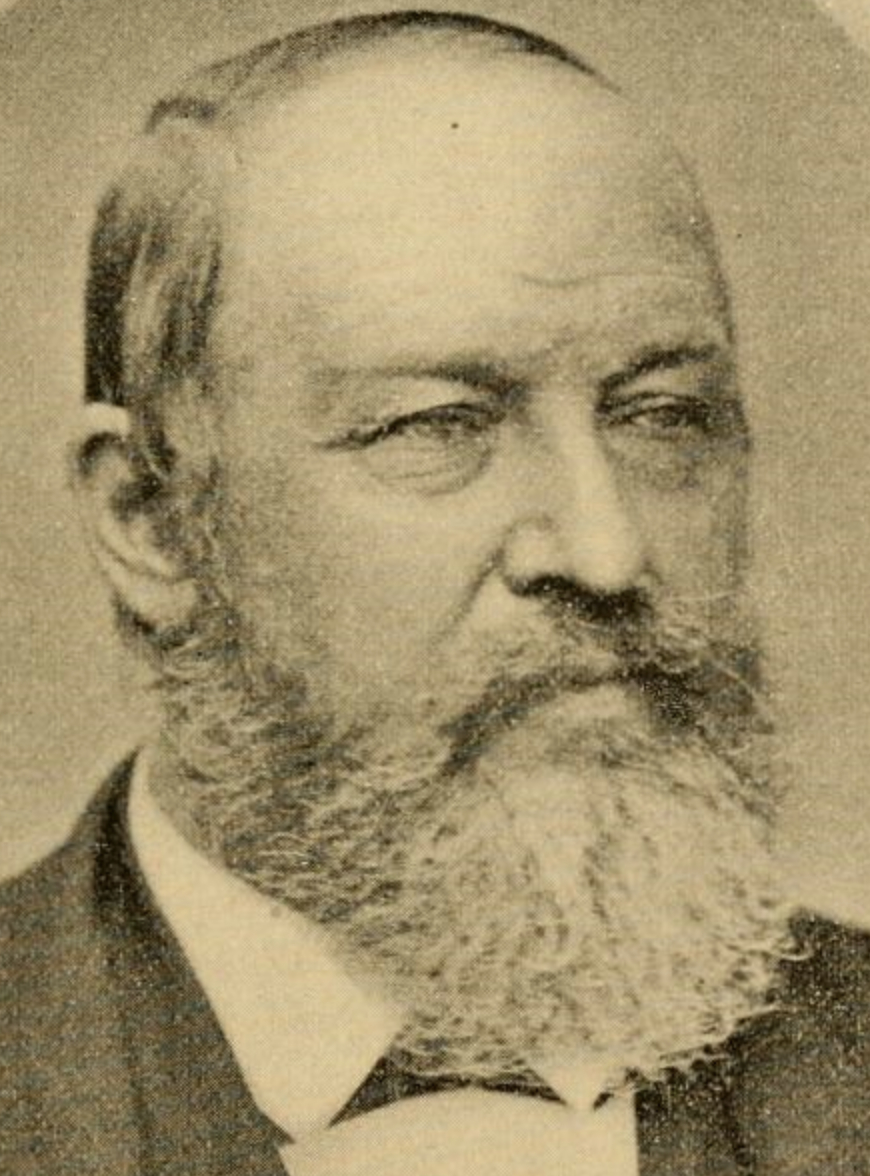
On this date in 1818, freethought publisher DeRobigne Mortimer Bennett was born two months prematurely in Springfield, New York. He had a lifelong limp. Bennett worked in a printing office and joined the New London Shaker community at 15. By the age of 27 he was working as the community’s physician. He shook off the celibate Shakerism in 1846 when he and Mary Wicks, also a Shaker, fell in love and eloped.
In 1873 Bennett started The Truth Seeker in Paris, Illinois. The paper began as a way to reply to a clergyman whose letters were published by local papers which had suppressed Bennett’s responses. He took his paper to New York City the next year, where it was published at 335 Broadway.
He deliberately published and mailed “An Open Letter to Jesus Christ” (a 36-page pamphlet) and a scientific work on marsupial propagation to challenge the Comstock Act, which allowed postal authorities to intercept “blasphemous” or indecent mail. He was arrested in November 1877, was defended by Robert Ingersoll and charges were dismissed. In August 1878 he was arrested for selling a copy of E.H. Heywood’s anti-marriage pamphlet “Cupid’s Yokes: The Binding Forces of Conjugal Life,” for which he served a year in prison, the case becoming an international cause celebre. Some 200,000 people signed a petition for his release.
His productivity can be gauged by his schedule between 1873 and 1882. During those years he spent a year in prison, went for a year-long world voyage, spent a season in Europe and wrote The World’s Sages, Thinkers and Reformers (1,100 pages). He followed that book up with The Champions of the Church (even longer), The Gods and Religions of Ancient and Modern Times (two volumes of 1,000 pages each), An Infidel Abroad (800 pages), A Truth Seeker Around the World (four volumes of 750 pages each) and “unnumbered columns of editorial matter and articles for The Truth Seeker,” according to his profile in Four Hundred Years of Freethought (ed. S.P. Putnam, 1894).
Bennett built The Truth Seeker into a major publishing house of freethought and scientific titles. He died at 64. Freethinkers of America erected a monument over his grave. (D. 1882)
“Was the star which was said to point out to the wise men who sought you in the stable in which you was born, a real star like others, millions of miles away, and which are immense bodies of matter, or was it a little star gotten up especially for the occasion and which moved near the surface of the earth?”
— Bennett, "An Open Letter to Jesus Christ," The Truth Seeker (November 1875)
